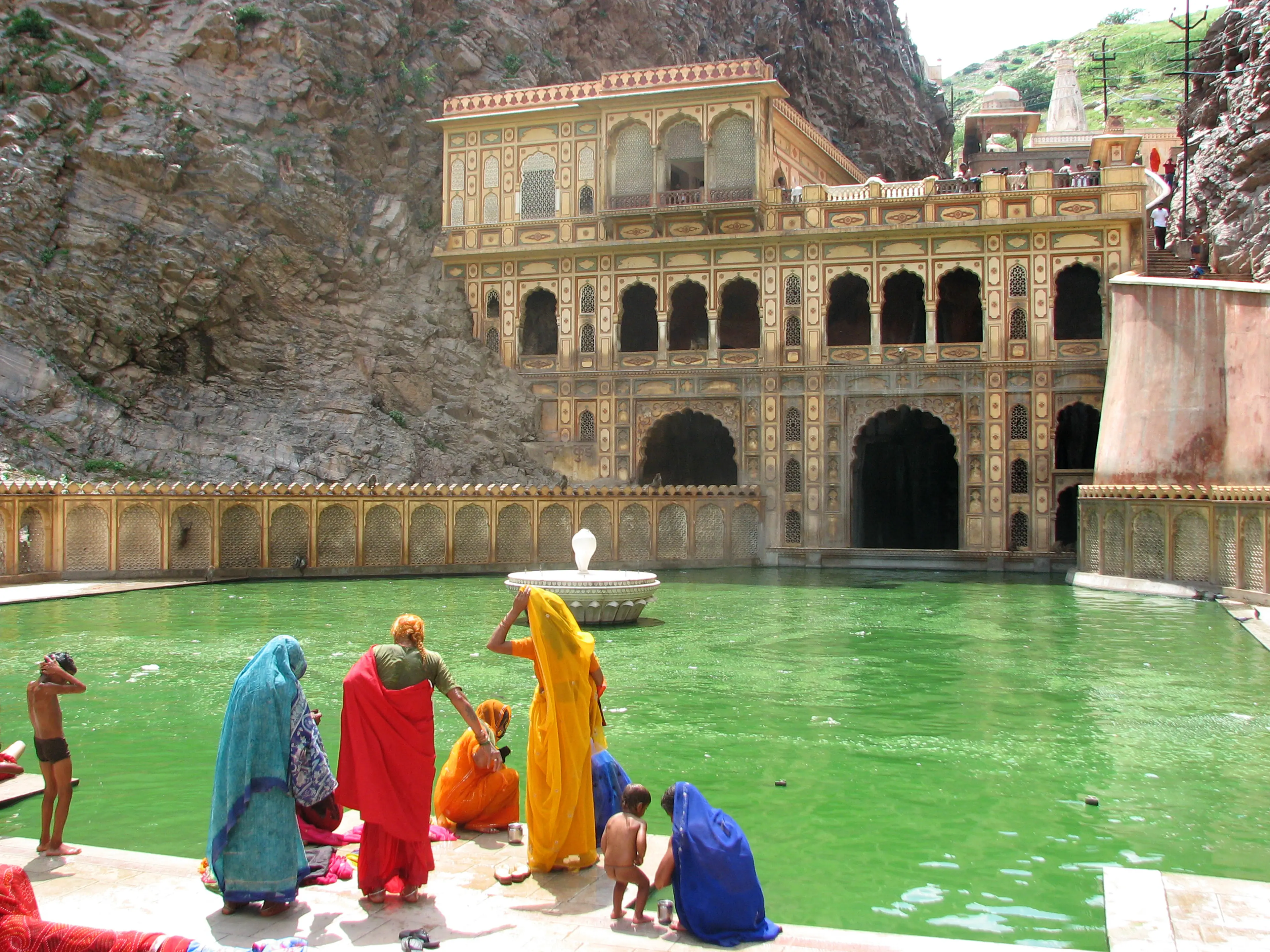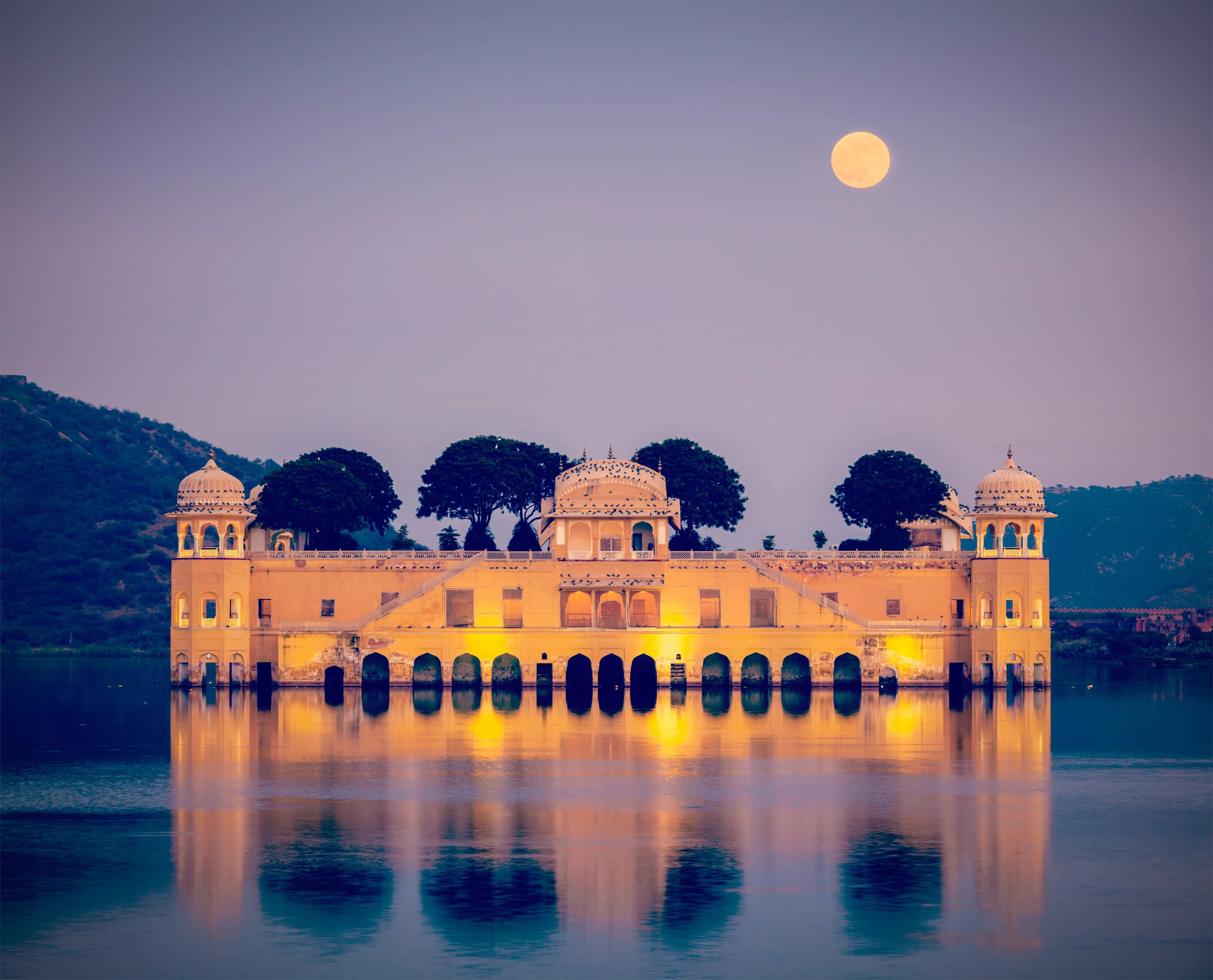2-Day Solo Adventure and Sightseeing Itinerary in Jaipur, India
Jaipur, India
2 days
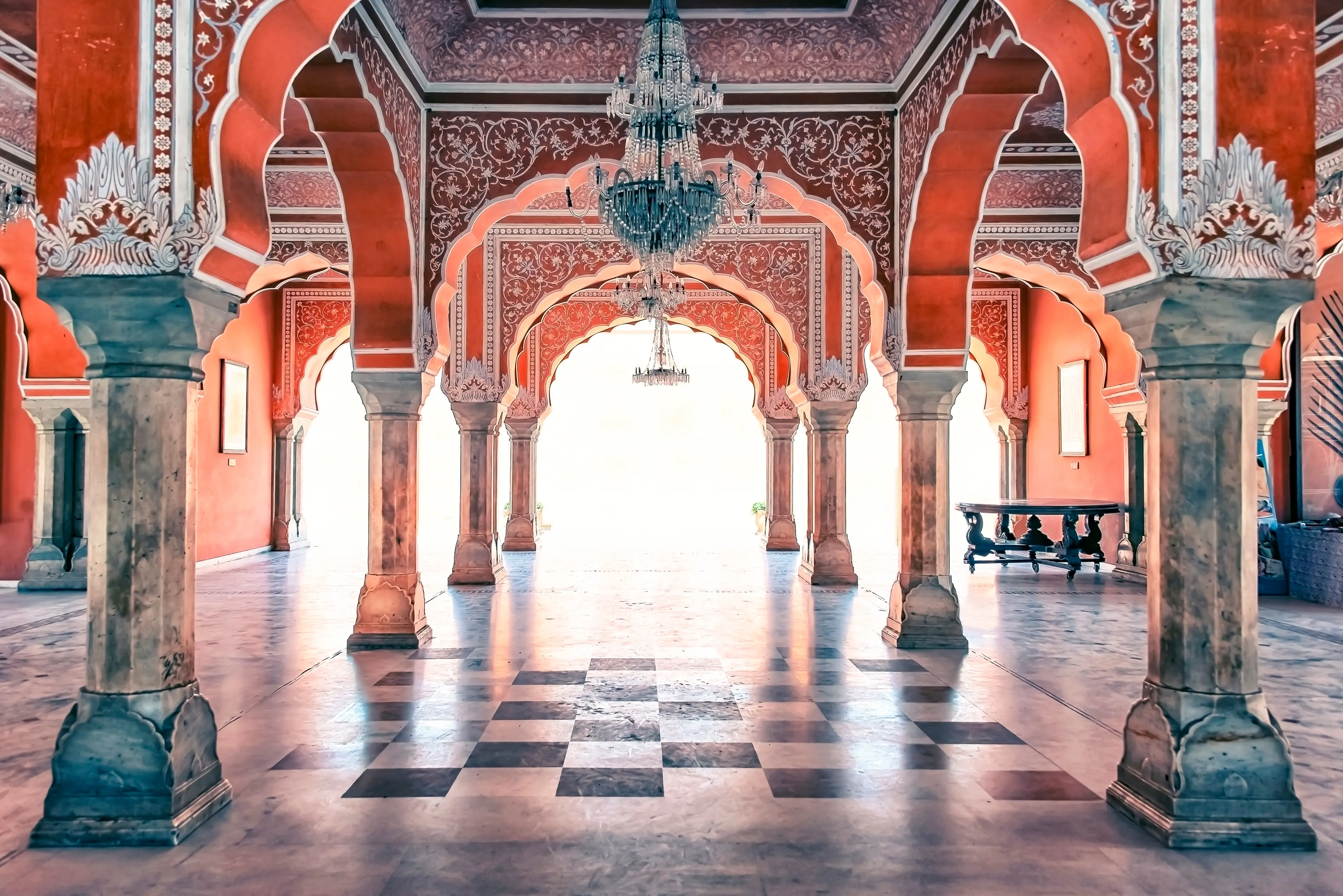
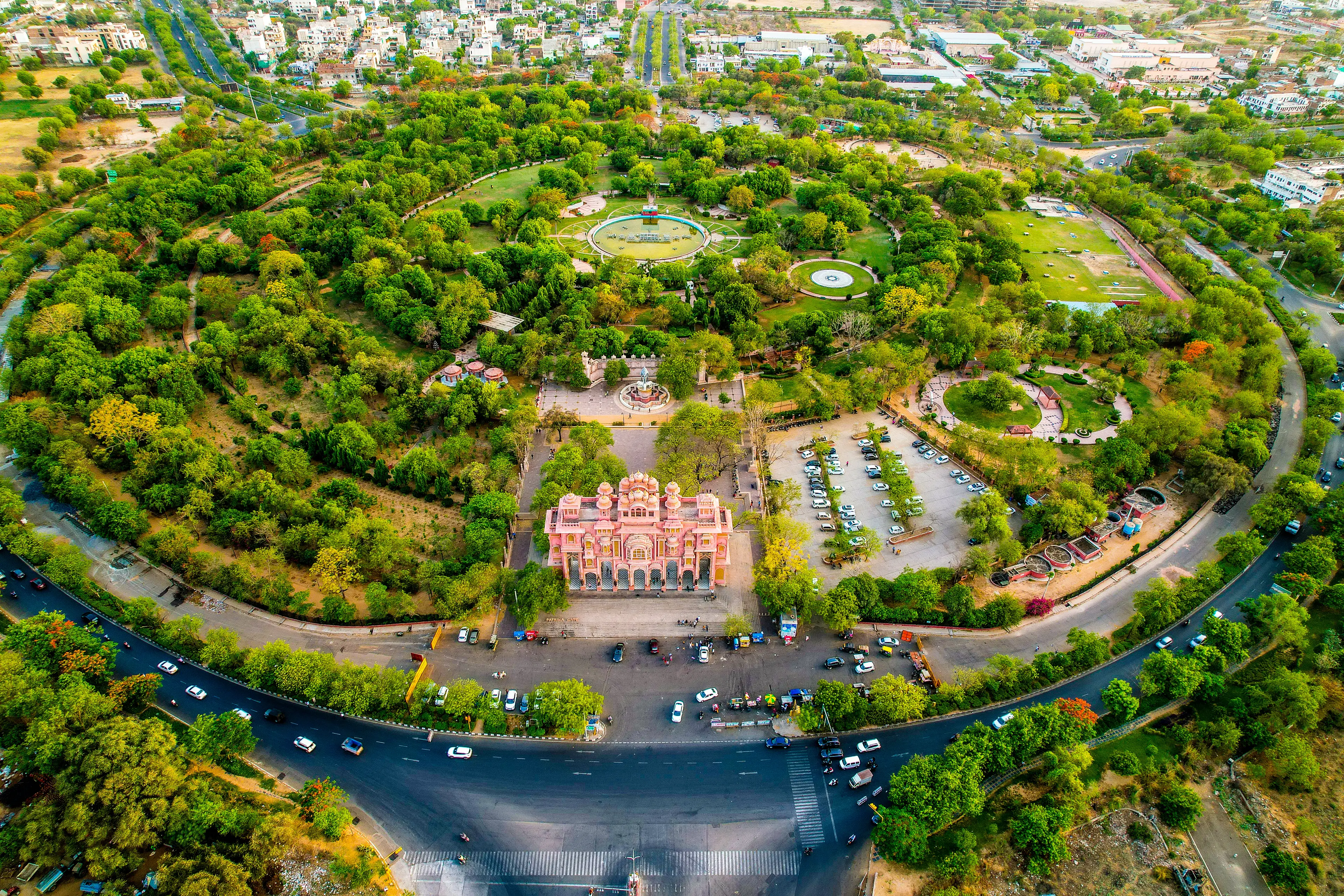
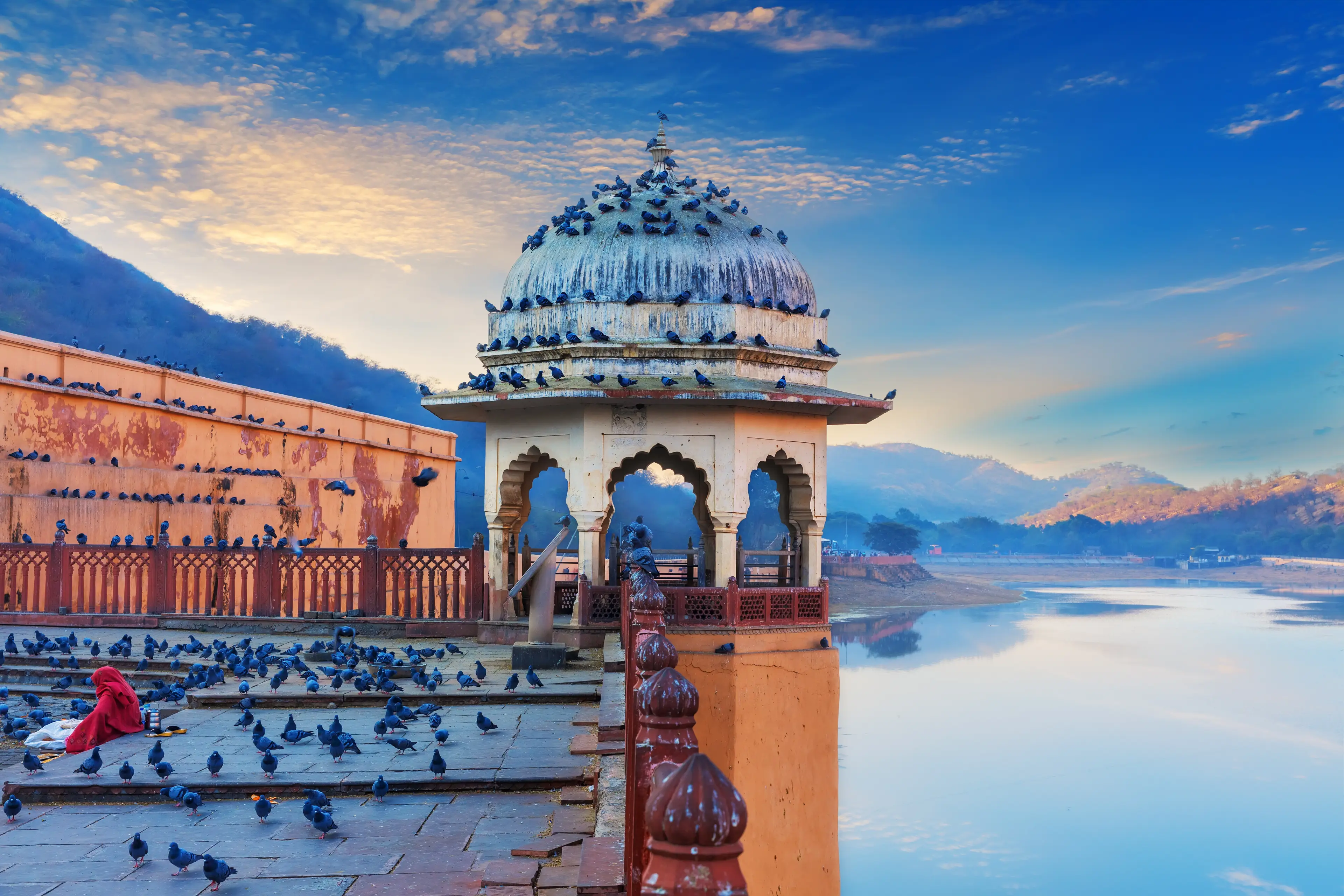
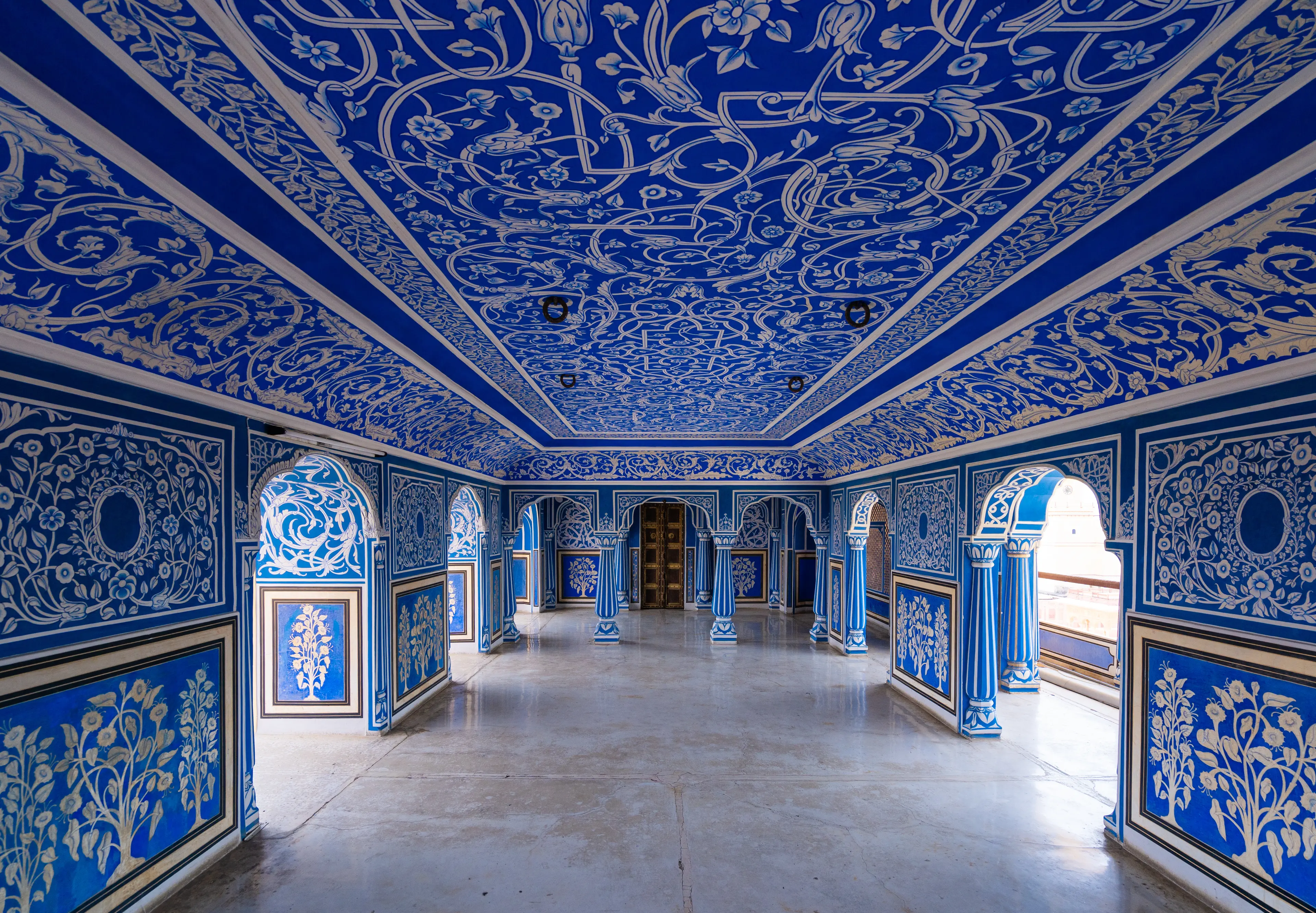
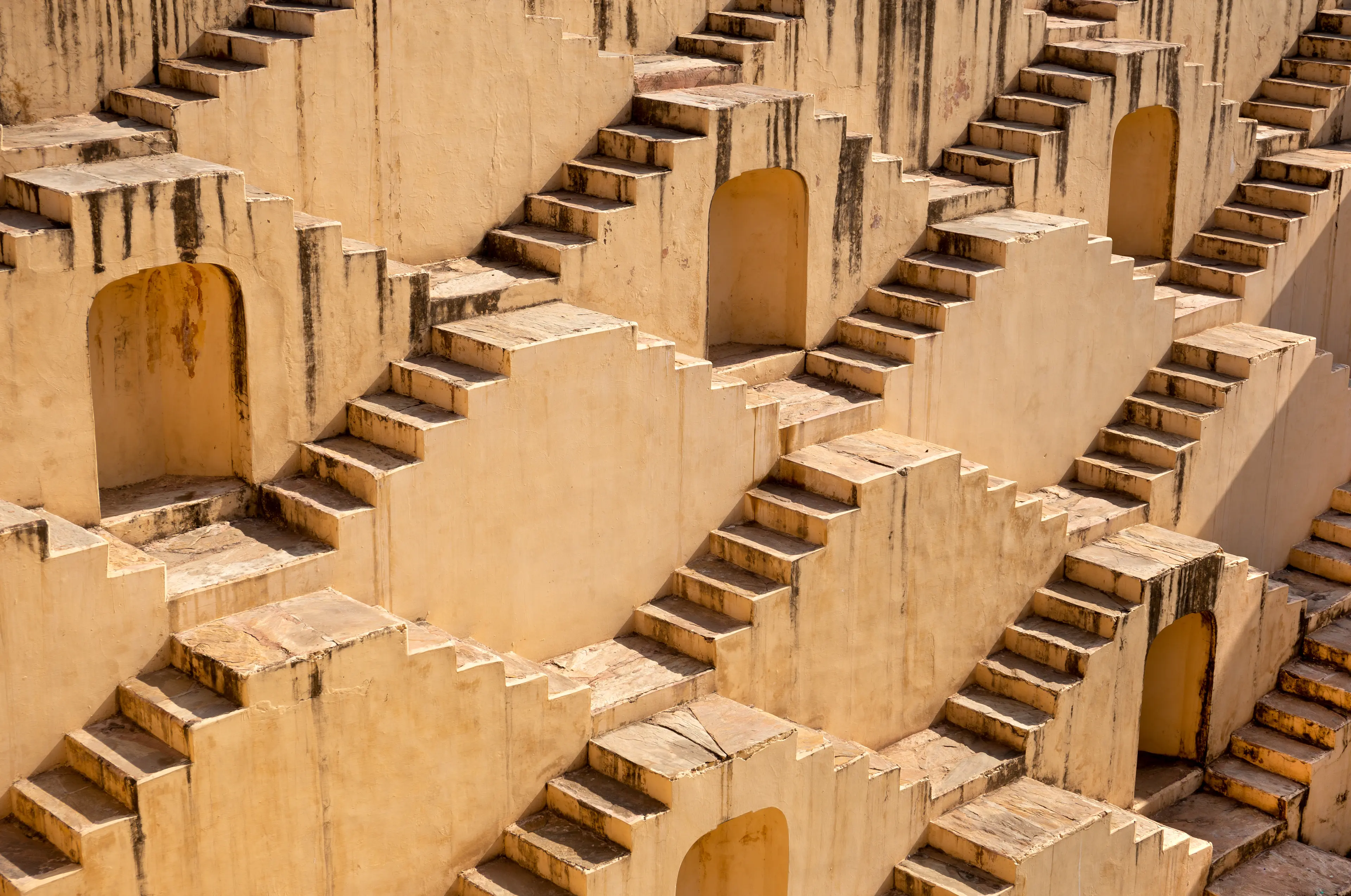
About Jaipur, India
Experience the rich cultural heritage of Jaipur, India, a city steeped in history and tradition. Known as the 'Pink City', Jaipur is home to magnificent palaces, majestic forts, and vibrant markets. Visit the iconic Hawa Mahal, a palace of winds, and the Amber Fort, a beautiful blend of Hindu and Mughal architecture. Explore the City Palace, a complex of courtyards, gardens, and buildings reflecting Rajasthani and Mughal architecture. Don't miss the Jantar Mantar, an astronomical observatory listed as a UNESCO World Heritage site. Shop for traditional textiles, jewelry, and handicrafts in bustling local bazaars. Savor authentic Rajasthani cuisine, with dishes like Dal Baati Churma and Ghevar. Jaipur offers a perfect blend of cultural richness, architectural grandeur, and gastronomic delights, making it a must-visit destination for every travel enthusiast.
2-Day Itinerary
Day 2
Astronomy and Forts
Morning
Begin your day with a visit to the Jantar Mantar, an astronomical observatory built in the 18th century. It is a UNESCO World Heritage site and houses the world's largest stone sundial.
Lunch
Have lunch at a local restaurant. Try the Rajasthani Thali, a platter of various dishes served in small bowls on a round tray.
Afternoon
Spend your afternoon at the Jaigarh Fort, known for housing the world's largest cannon on wheels. The fort offers panoramic views of the surrounding landscape and the city below.
Dinner
Enjoy dinner at a local restaurant. Try the traditional Rajasthani sweets like Ghevar and Mawa Kachori.
Evening
End your day with a stroll in the local markets. Jaipur is famous for its textiles, gemstones, and handicrafts. Don't miss the chance to buy some souvenirs.
Attractions in Itinerary (5)
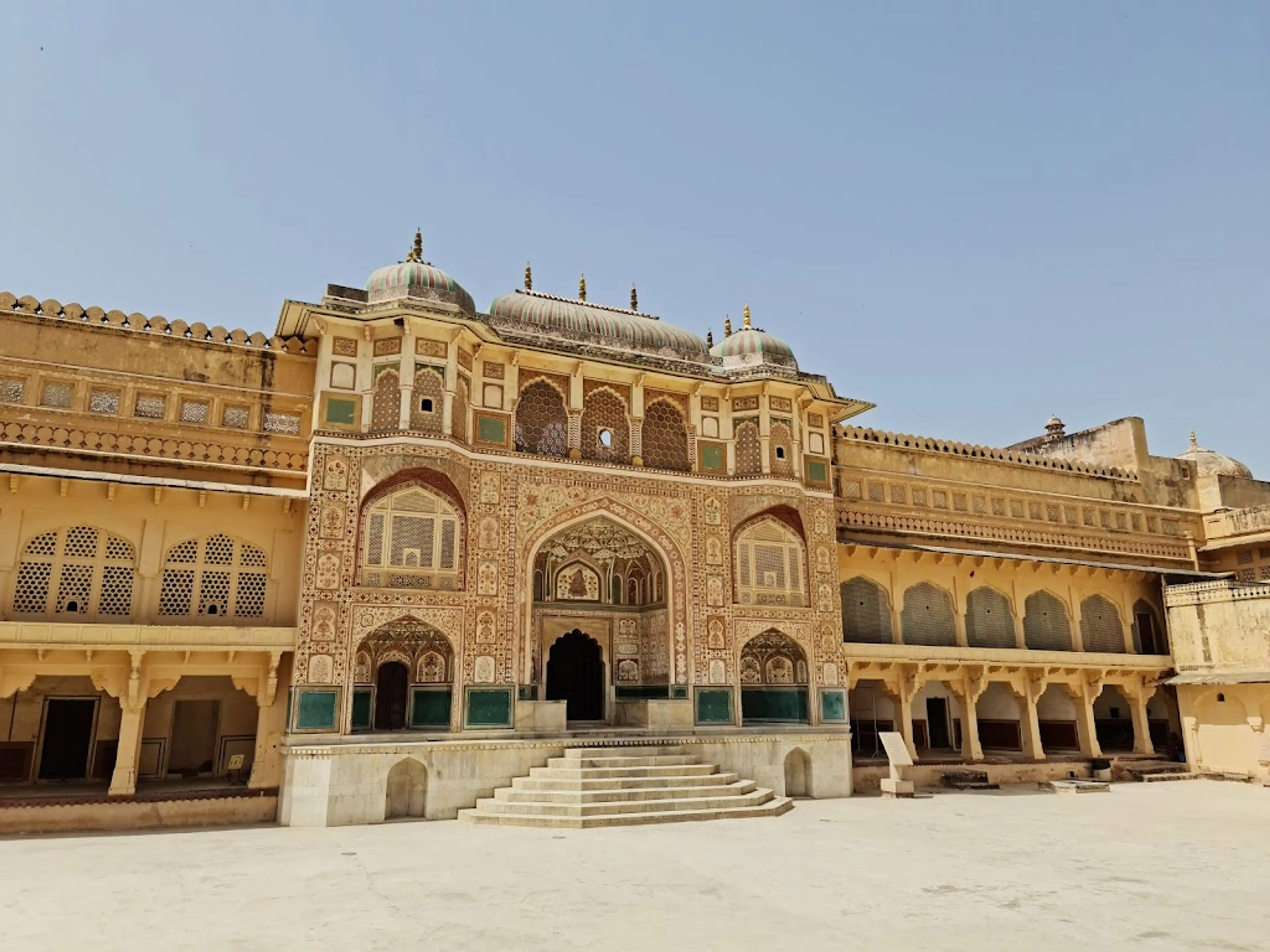
1Amber Fort
A magnificent fort made of red sandstone and marble, showcasing a blend of Hindu and Rajput style of architecture.
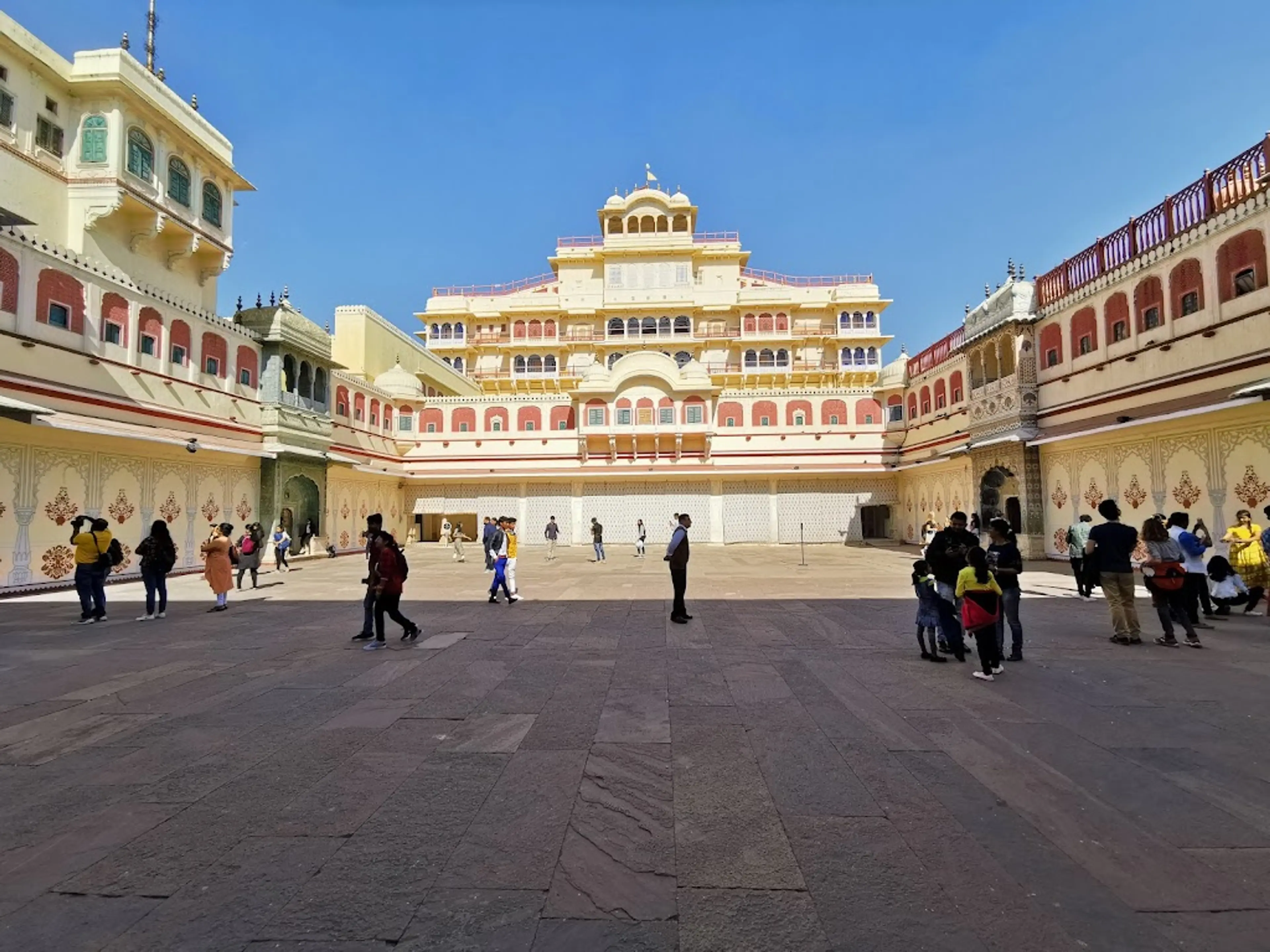
2City Palace
A palace complex featuring impressive courtyards, gardens and buildings with a fusion of Indian and European architectural styles.
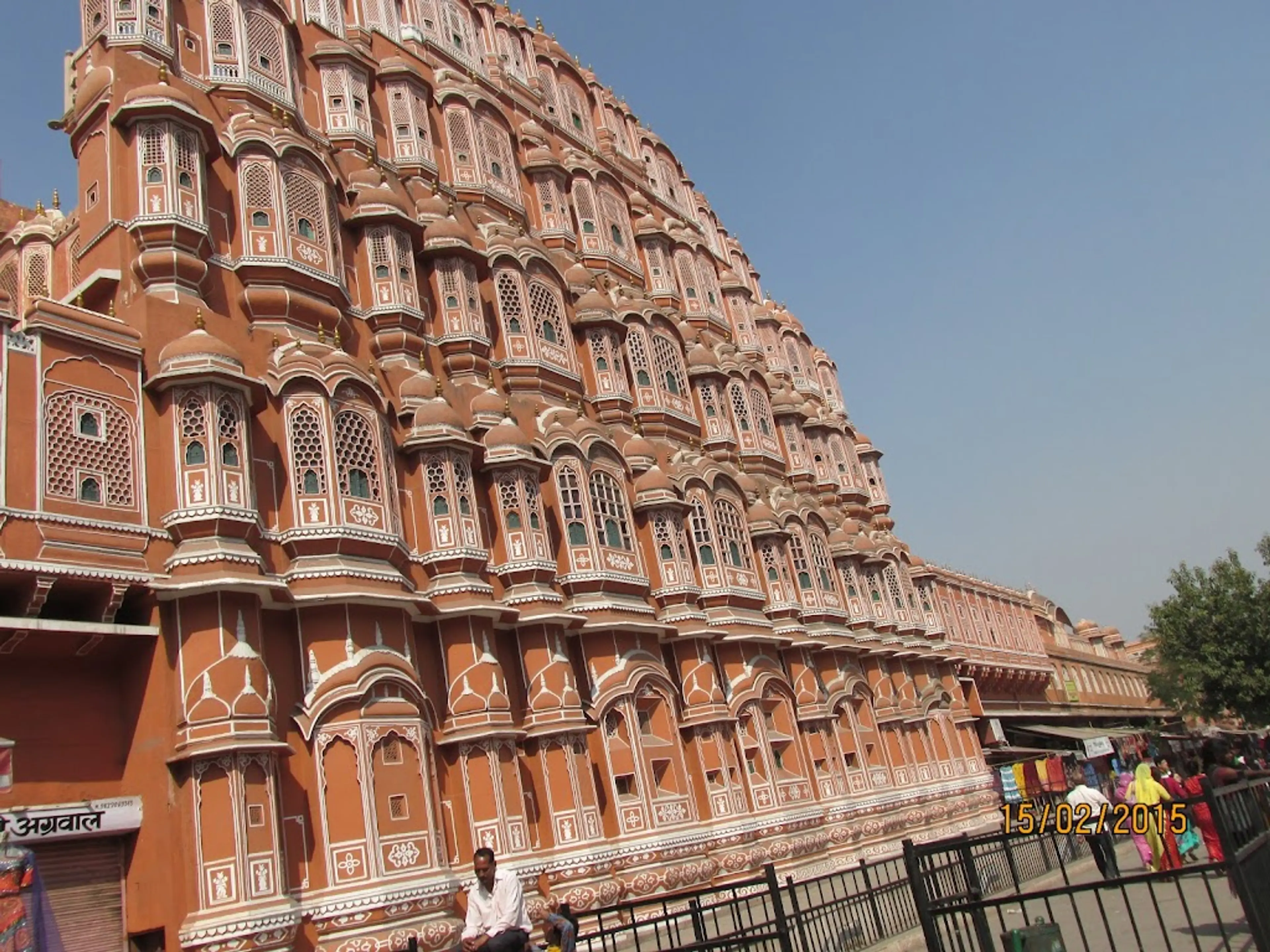
3Hawa Mahal
A unique five-story structure with a honeycomb design, known as 'Palace of Winds', built for royal women to observe street festivals without being seen.
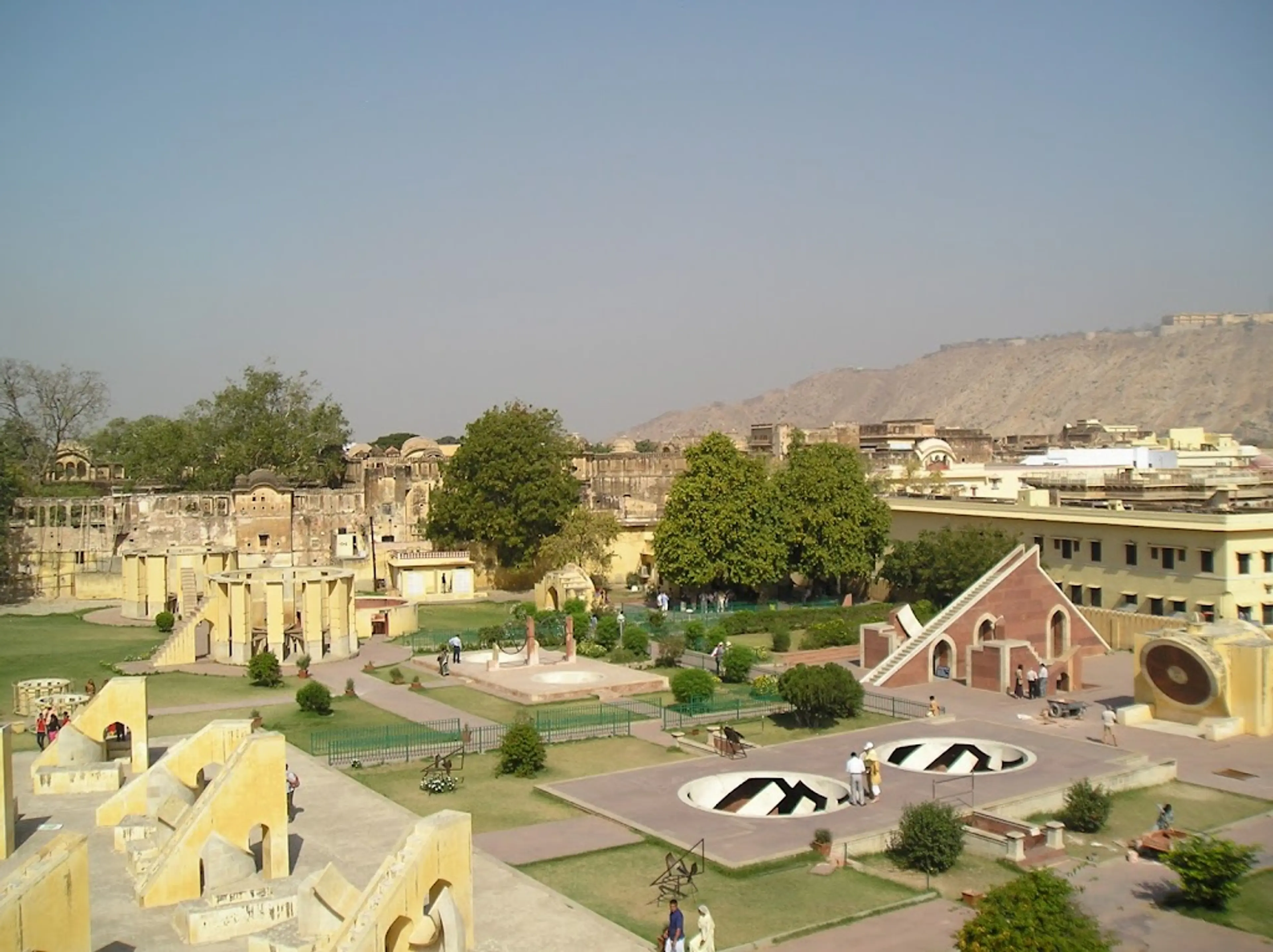
4Jantar Mantar
A collection of nineteen architectural astronomical instruments, built by the Rajput king Sawai Jai Singh II.
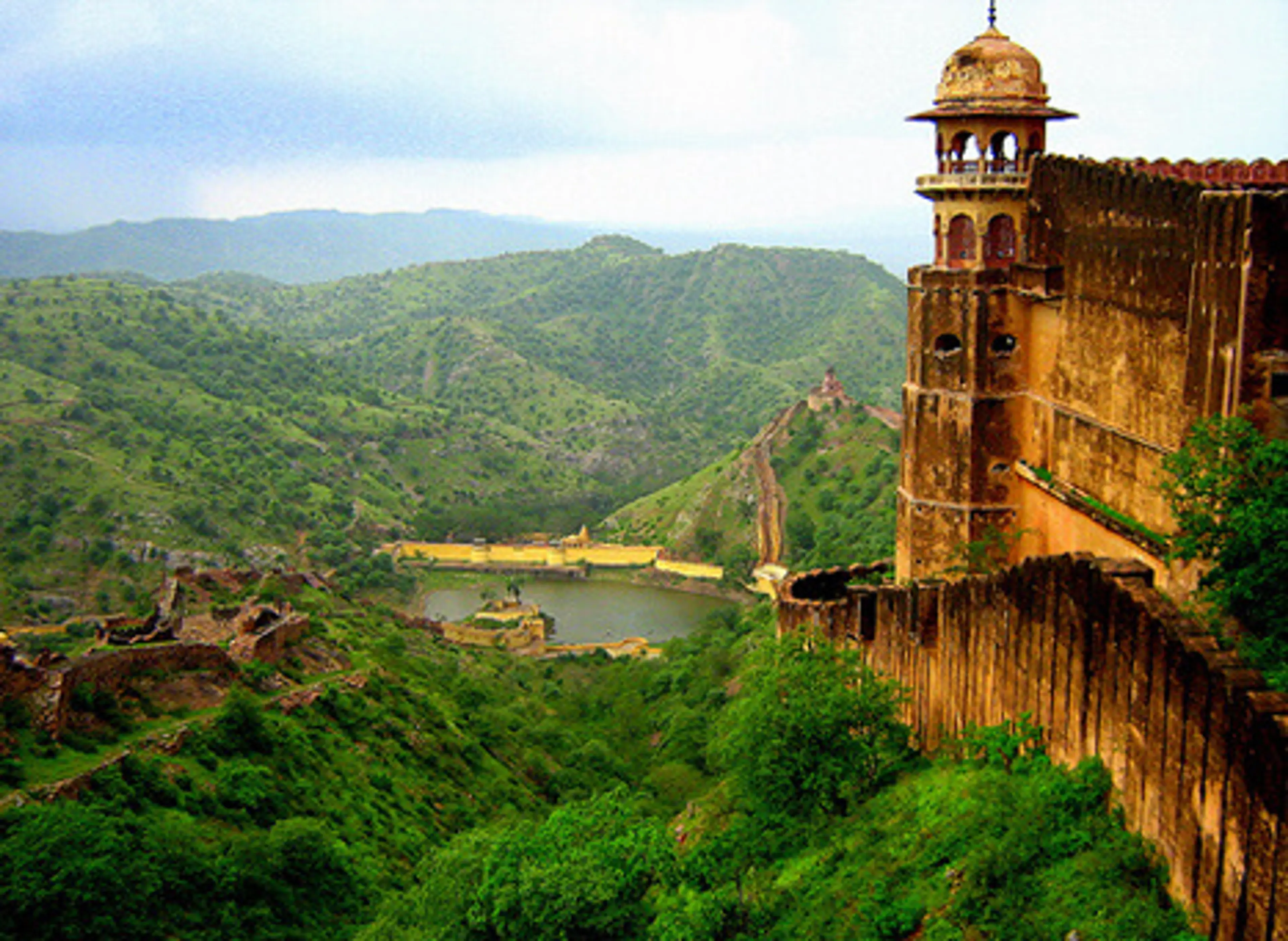
5Jaigarh Fort
A fort known for housing the world's largest cannon on wheels, and offering panoramic views of the city.
Local Food and Drinks (12)

Daal Baati Churma
A traditional Rajasthani dish, Daal Baati Churma is a combination of lentil curry (daal), baked round bread (baati), and sweet crumbly dessert (churma). It's a must-try when visiting Jaipur.
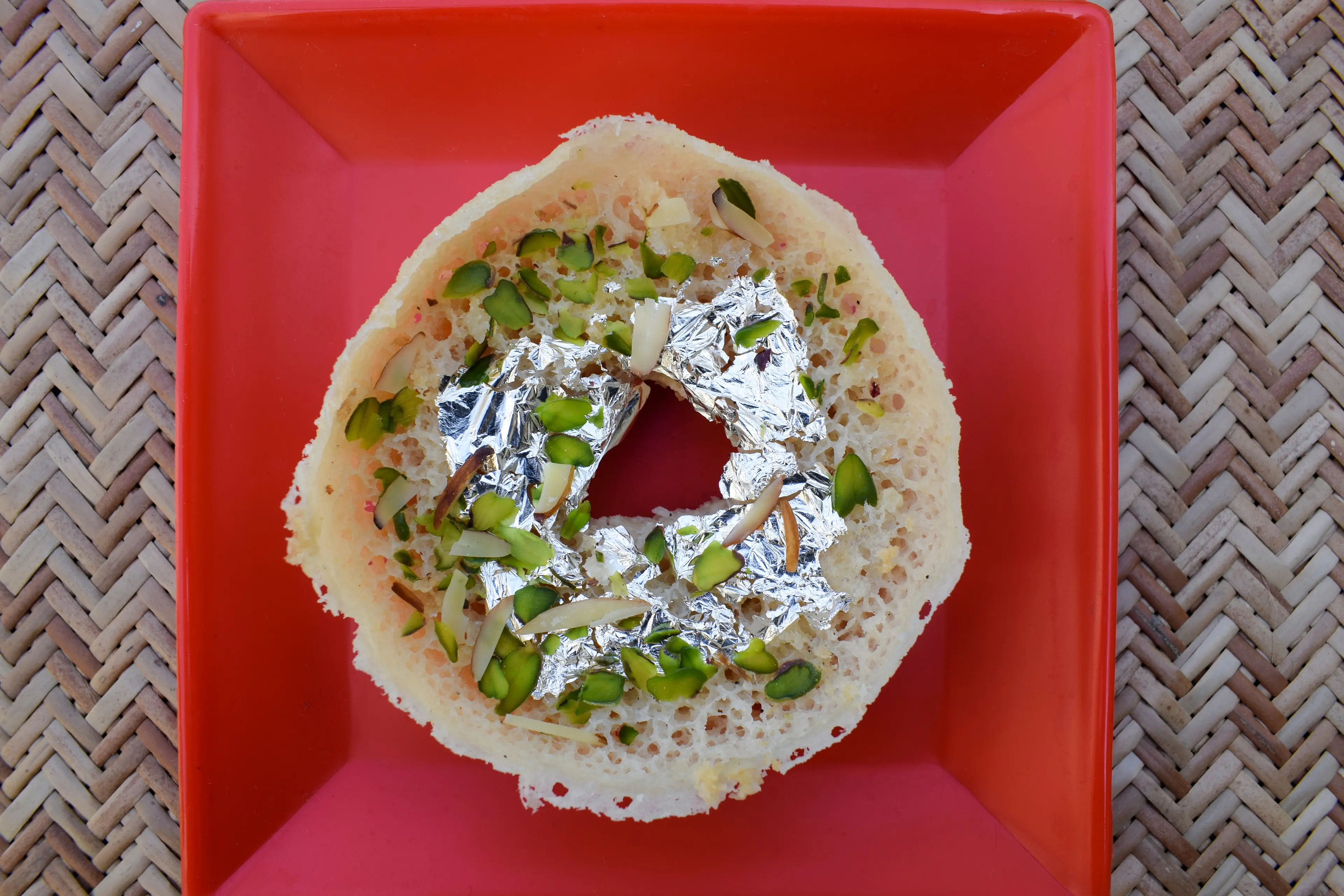
Ghevar
Ghevar is a disc-shaped sweet cake made with all-purpose flour and soaked in sugar syrup. It's a special delicacy of Jaipur, especially during the Teej festival.
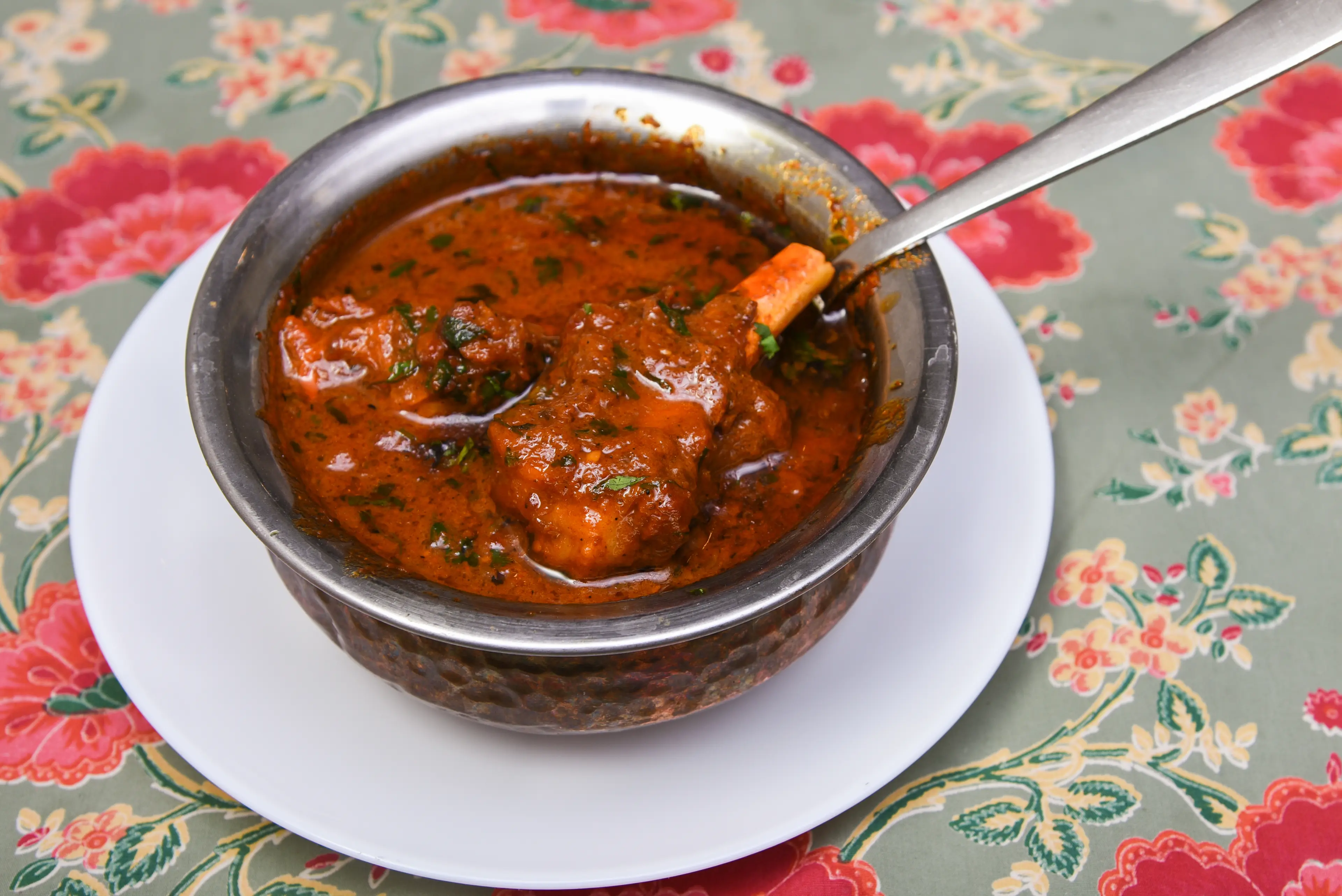
Laal Maas
Laal Maas is a fiery red mutton curry, cooked with a variety of spices and red chillies. It's a signature dish of Jaipur, showcasing the region's love for spicy food.
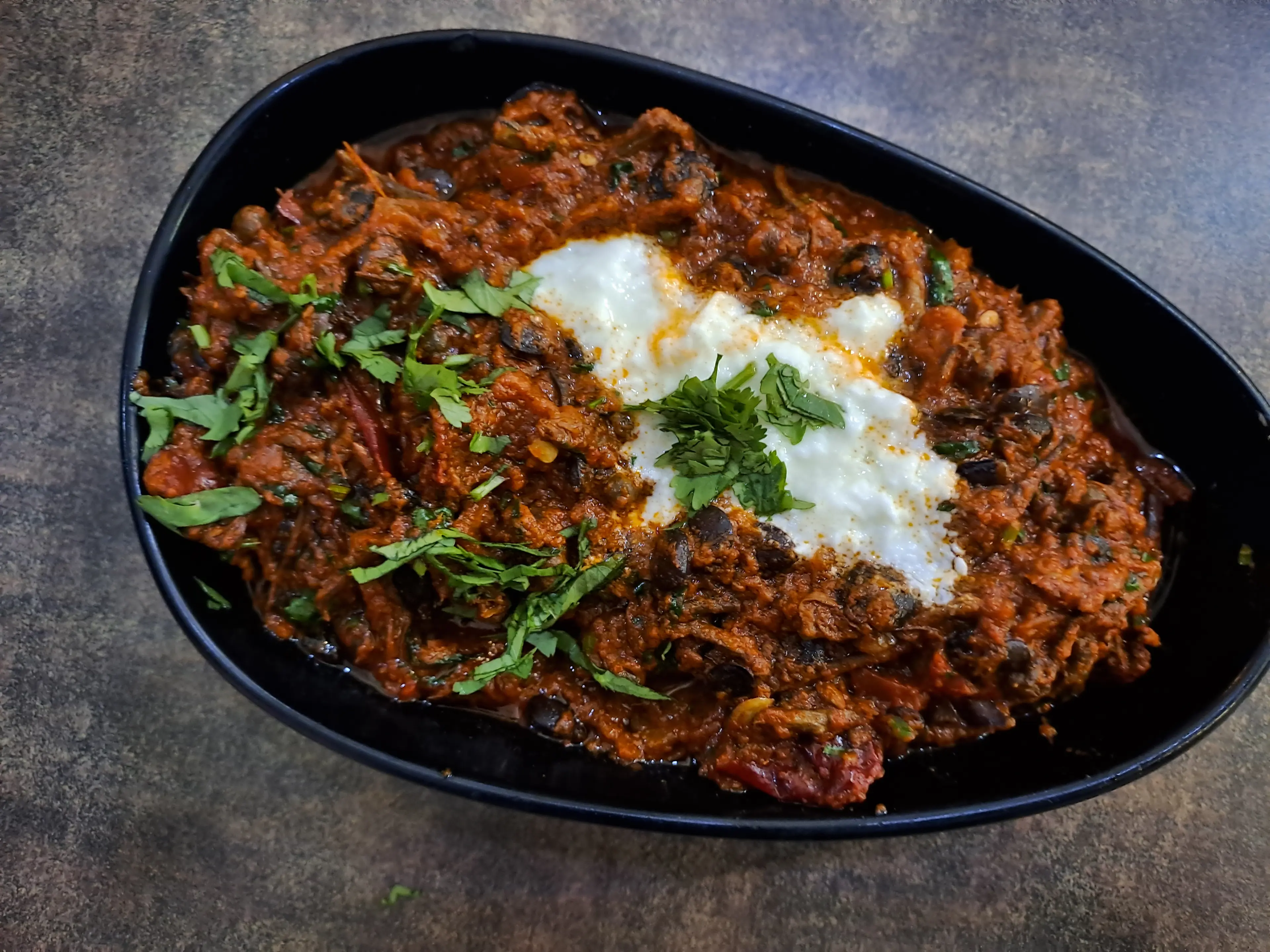
Ker Sangri
Ker Sangri is a traditional Rajasthani dish made from desert beans and berries, cooked with spices. It's a unique taste of Jaipur's desert vegetation.
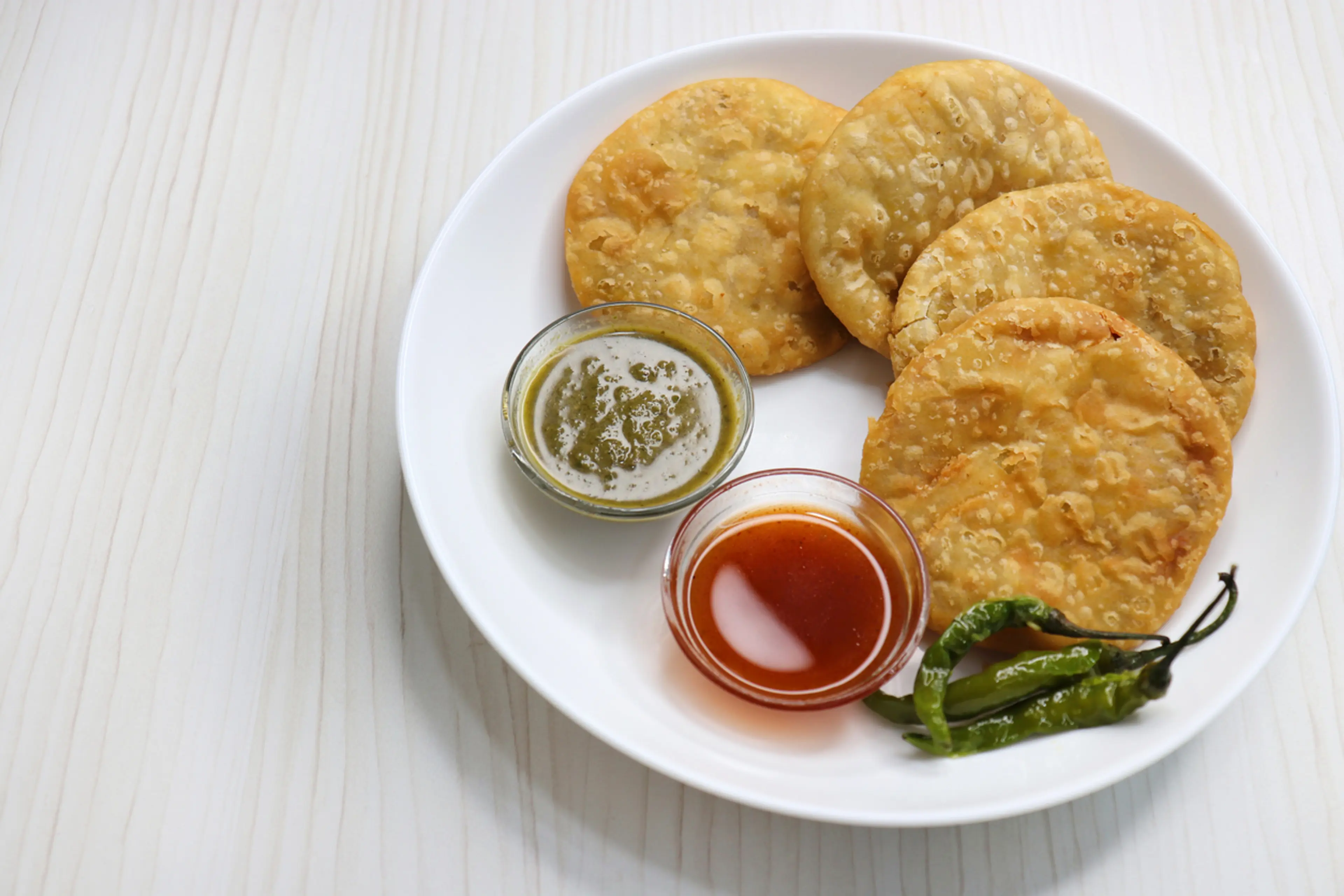
Pyaz Kachori
Pyaz Kachori is a deep-fried pastry filled with a spicy onion filling. It's a popular snack in Jaipur and can be found in most local sweet shops.
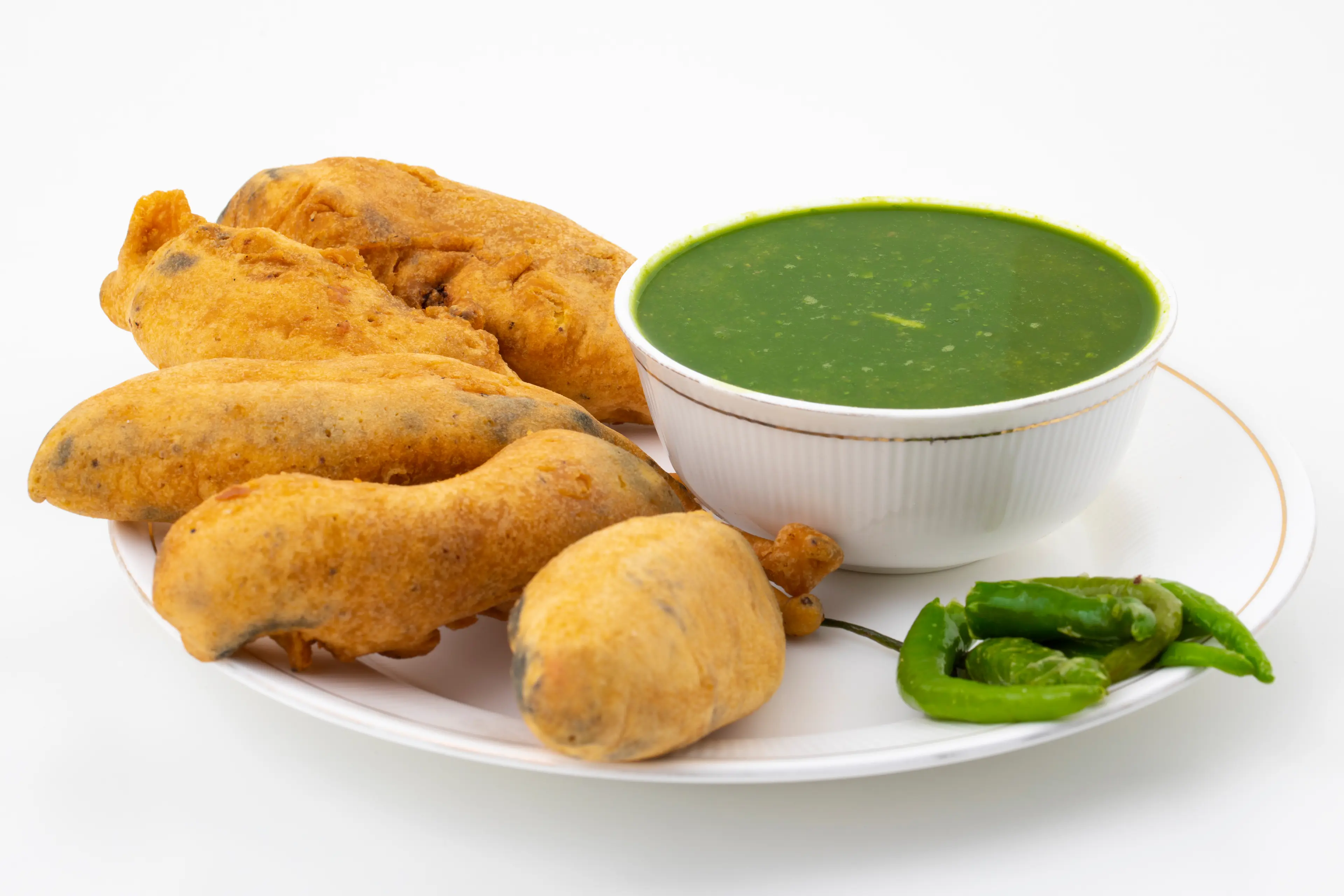
Mirchi Bada
Mirchi Bada is a spicy snack made from large green chillies filled with tangy potato stuffing, coated in gram flour batter and deep-fried. It's a popular street food in Jaipur.
Kadhi Kachori
Kadhi Kachori is a combination of Pyaz Kachori topped with spicy yogurt-based Kadhi. It's a unique and popular snack in Jaipur.
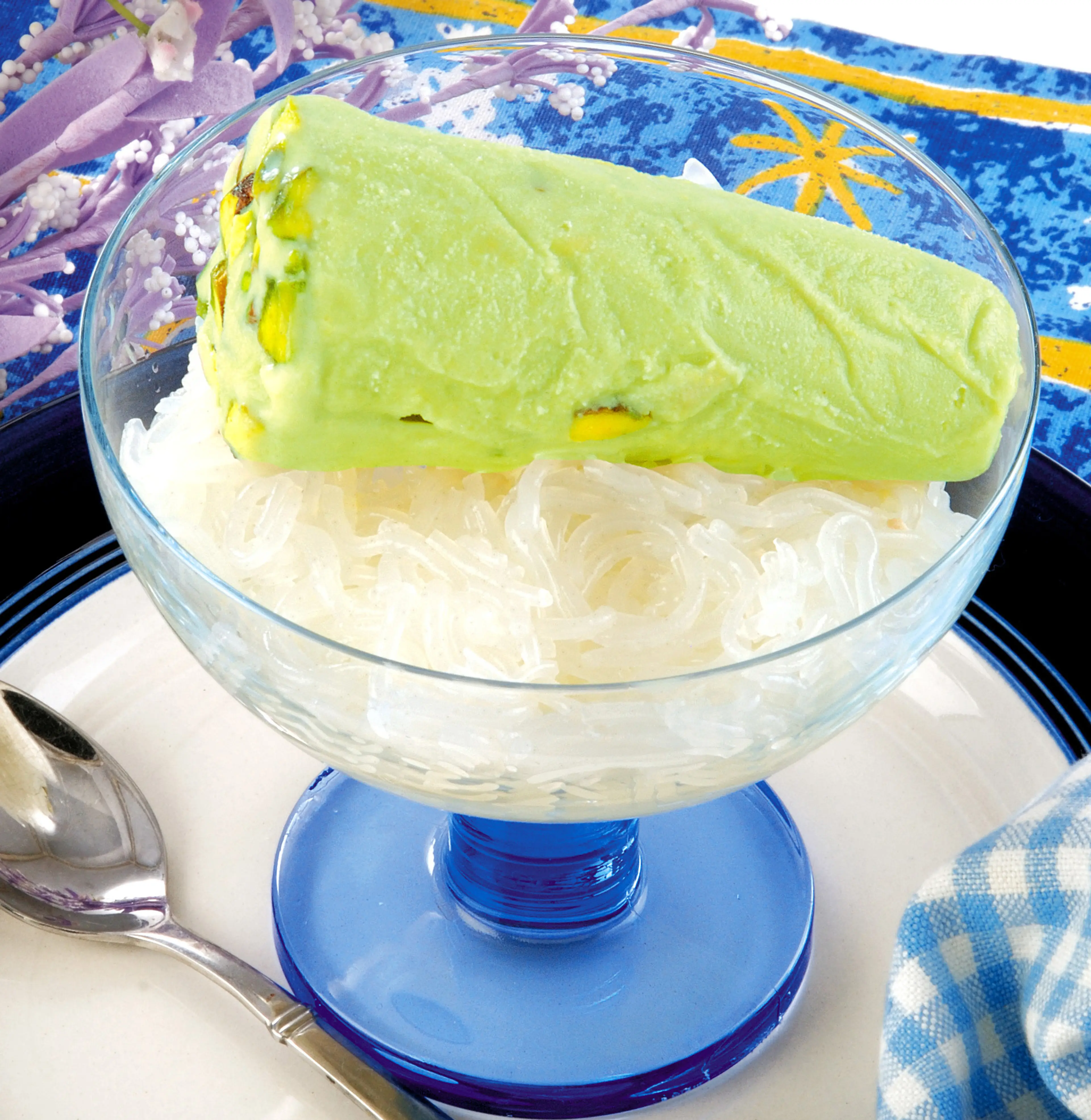
Kulfi Faluda
Kulfi Faluda is a sweet dessert made from creamy kulfi (Indian ice cream) served over sweetened vermicelli noodles (faluda). It's a popular dessert in Jaipur, especially during the summer.
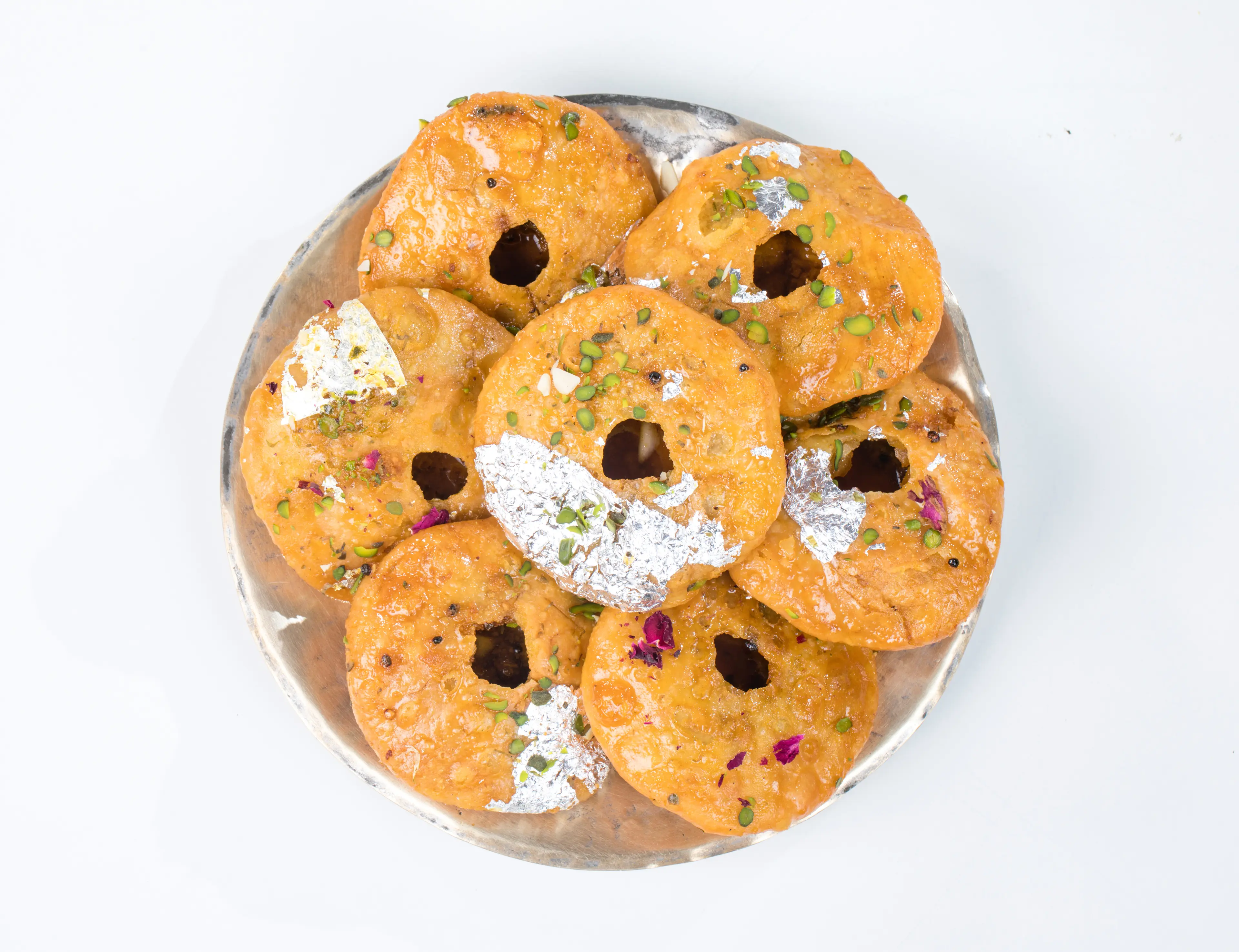
Mawa Kachori
Mawa Kachori is a sweet version of kachori, filled with a rich mixture of mawa (dried whole milk) and nuts, deep-fried and dipped in sugar syrup. It's a speciality of Jaipur.
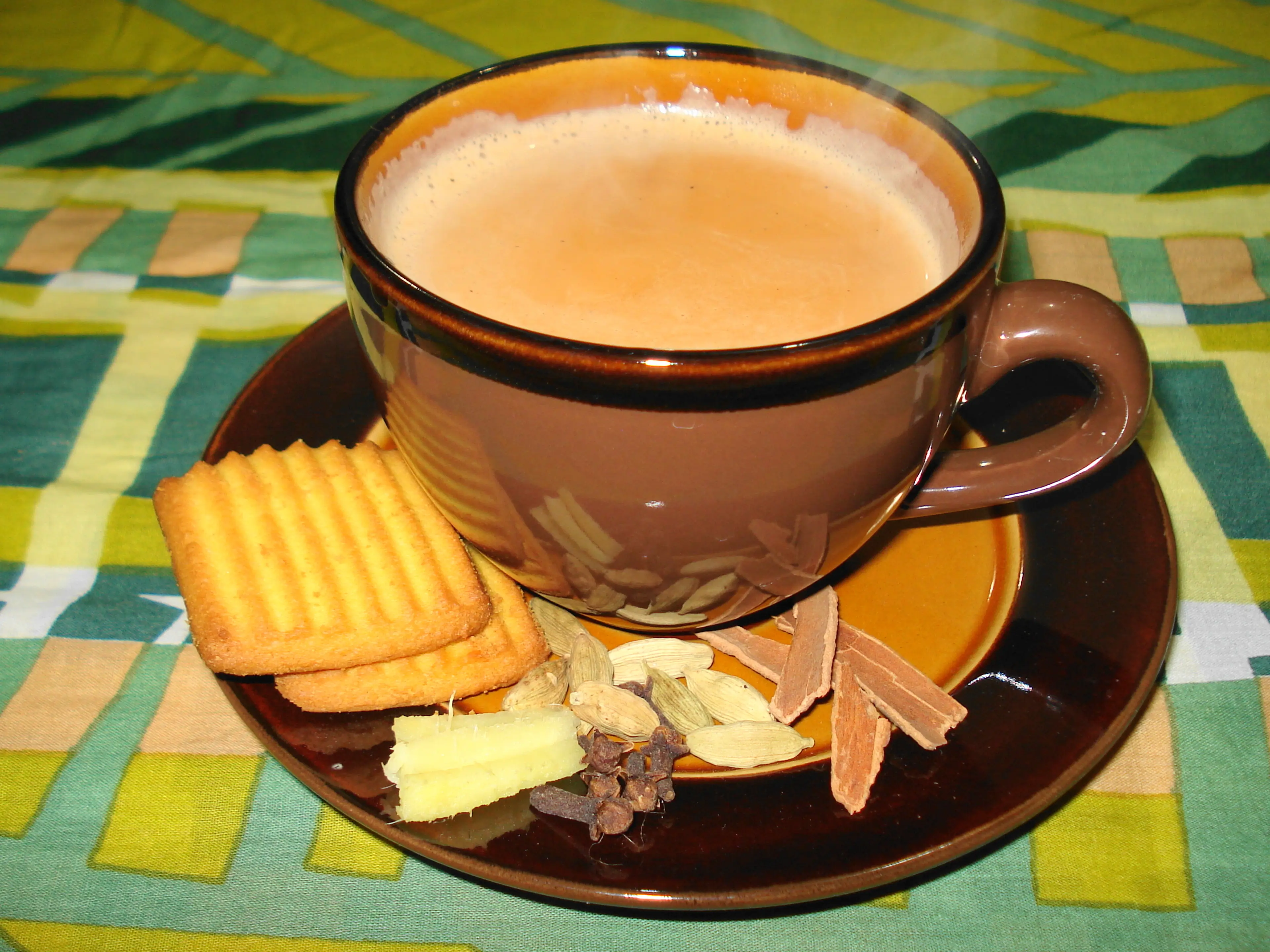
Masala Chai
Masala Chai is a spiced tea made with a blend of spices like cardamom, ginger, and cloves. It's a staple beverage in Jaipur and is enjoyed throughout the day.
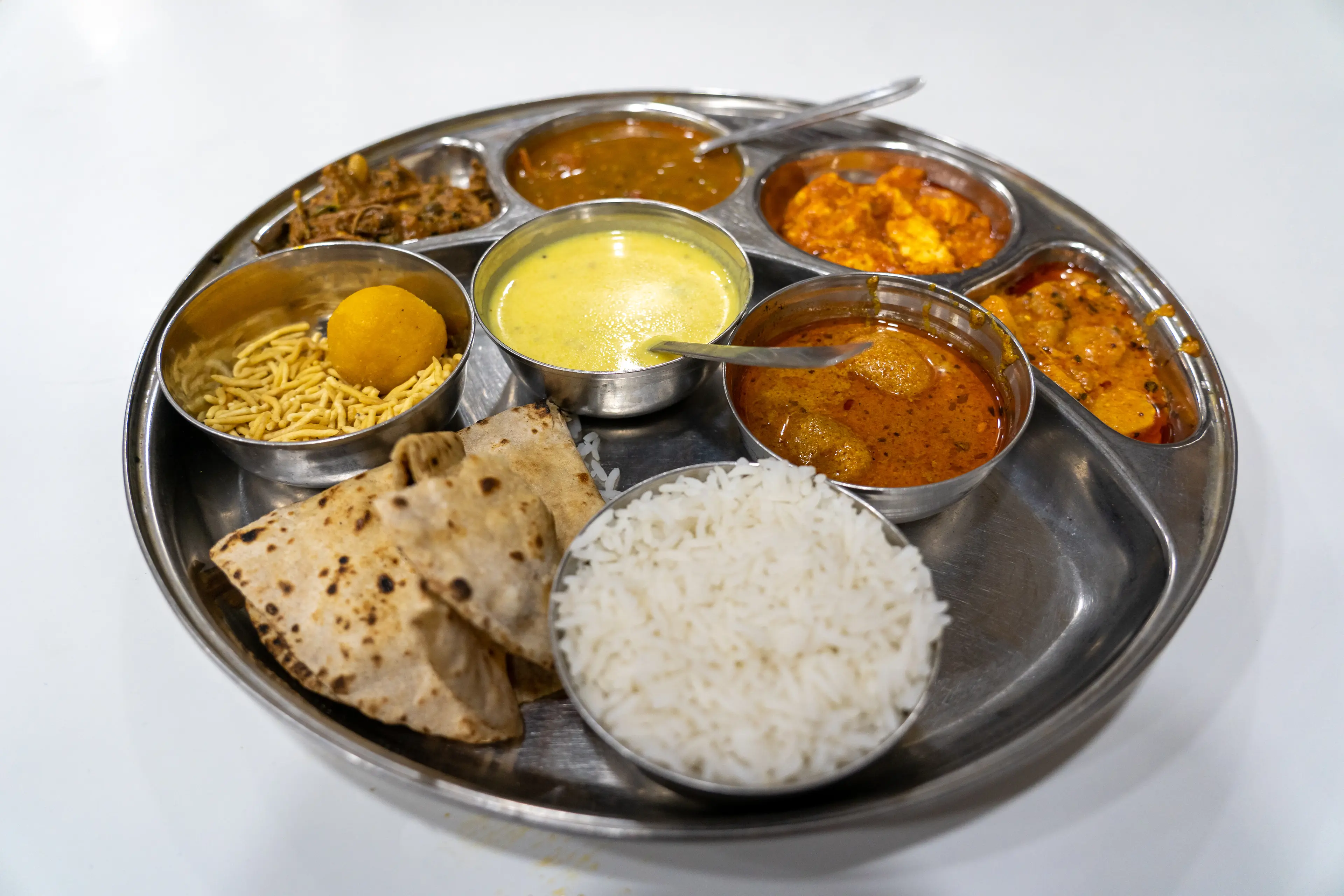
Rajasthani Thali
Rajasthani Thali is a platter of various Rajasthani dishes like daal, baati, churma, gatte ki sabzi, ker sangri, and more. It's a great way to sample a variety of Jaipur's local cuisine in one meal.
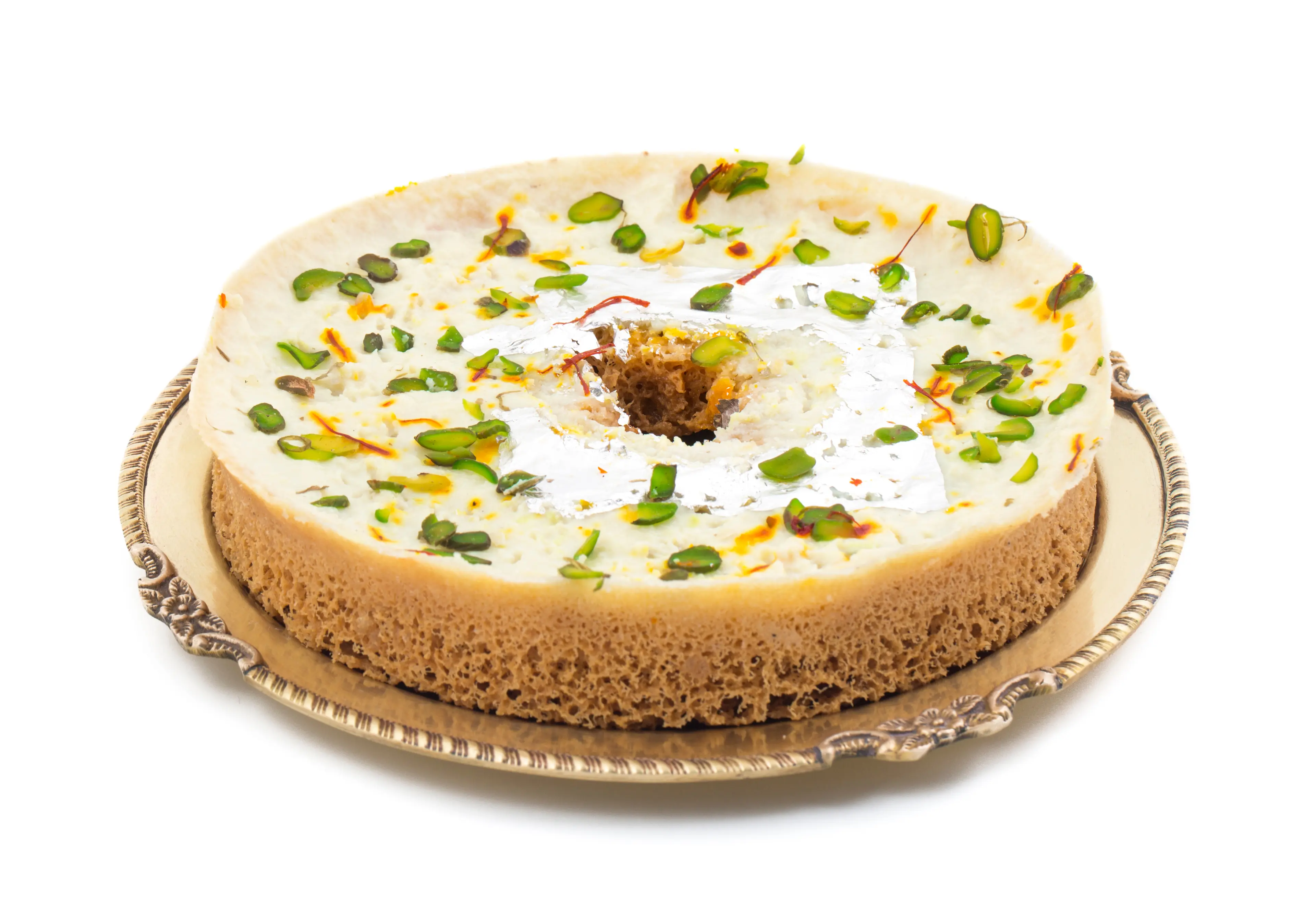
Rabri Ghevar
Rabri Ghevar is a variation of the traditional Ghevar, topped with a layer of creamy, condensed milk (rabri). It's a rich and indulgent dessert, popular in Jaipur.
Best time to visit
The best time to visit Jaipur, India is during the winter months, from November to February. During this period, the weather is pleasant and perfect for sightseeing, with temperatures ranging from 5°C to 25°C. This is also the time when the city hosts several festivals and events, offering tourists a chance to experience the vibrant culture and traditions of Jaipur.
How to get around
Auto Rickshaw
Auto Rickshaws are a popular mode of transport in Jaipur. They are small, three-wheeled vehicles that can accommodate up to three passengers. They are perfect for short distances and navigating through the city's narrow lanes.
Bus
Jaipur City Transport Services Limited (JCTSL) operates a fleet of buses that service various routes across the city. Buses are a cost-effective way to travel, especially for longer distances.
Taxi
Taxis are readily available in Jaipur and can be hailed from the street or booked in advance. They offer a convenient and comfortable way to travel around the city, especially for tourists who are unfamiliar with the area.
Ridesharing
Ridesharing services such as Uber and Ola are available in Jaipur. These services offer a convenient and often cheaper alternative to traditional taxis. They can be booked via a smartphone app, allowing for easy travel around the city.
Bicycle
Jaipur is a bicycle-friendly city with many cycle paths and bike rental services. Cycling is a fun and eco-friendly way to explore the city at your own pace.
Car Rental
Renting a car is a good option for those who prefer to drive themselves. Several car rental companies operate in Jaipur, offering a range of vehicles to choose from. Remember that driving in India is on the left-hand side.
Elephant Ride
For a unique and traditional mode of transport, consider an elephant ride. These are particularly popular in the Amer Fort area, providing a memorable way to explore this historic site.
Foot
Many of Jaipur's attractions are located close to each other, making walking a viable option. Walking also allows you to experience the city's vibrant street life up close.
Cycle Rickshaw
Cycle Rickshaws are a common sight in Jaipur. They are a slow and leisurely mode of transport, perfect for short distances and a unique way to experience the city.
Train
Jaipur is well connected by rail to other major cities in India. Within the city, the train can be a quick and efficient way to travel, especially during peak traffic hours.
Important information
Currency₹ INR
Time zoneUTC+5.5
Driving sideLeft
Emergency phoneAmbulance: 102; Fire: 101; Police: 100, 103 (traffic accident)
Drinking waterOpt for bottled water
Power sockets
Voltage230 V
Things to know about Jaipur, India as a first time visitor
1
Jaipur is known as the 'Pink City' due to the dominant color scheme of its buildings.
2
The local language is Hindi, but English is widely spoken and understood.
3
The best time to visit Jaipur is from October to March when the weather is pleasant. Summers (April to June) can be extremely hot with temperatures reaching up to 113°F (45°C).
4
Indian Rupee (INR) is the local currency. Credit cards are accepted in most places, but it's advisable to carry some cash for small vendors and rickshaw rides.
5
Bargaining is common in local markets. Don't hesitate to negotiate prices.
6
Jaipur is generally safe, but like any other city, it's advisable to be cautious of your belongings and avoid isolated areas at night.
7
Indian cuisine can be spicy. If you're not used to it, ask for less spicy food.
8
Tap water is not safe to drink. Always opt for bottled water and ensure the seal is intact when you buy it.
9
Public transportation includes buses, auto-rickshaws, cycle rickshaws, and taxis. Uber and Ola (Indian ride-hailing services) are also available.
10
Dress modestly, especially when visiting religious places. Women should carry a scarf for covering their heads.
11
It's customary to remove your shoes before entering a religious place.
12
Tipping is not mandatory but appreciated. A tip of 10-15% is common in restaurants.
13
Street food is a must-try but ensure it's from a clean and reputable vendor.
14
Avoid giving money to beggars, as it encourages begging. If you wish to help, consider donating to a local charity.
15
It's considered respectful to greet with a 'Namaste' (hands folded and a slight bow).
16
Smoking in public places is prohibited and can attract a fine.
17
Alcohol is available but only in licensed bars and restaurants. Public drunkenness is frowned upon.
18
Always ask for permission before taking photos of locals, especially in rural areas.
19
It's advisable to carry a travel adapter. The power sockets in India are of type D and M.
20
Healthcare facilities are adequate in Jaipur, but it's recommended to have travel insurance that covers medical expenses.
Basic Hindi to know as a first time visitor
English phrase | Native phrase | Pronunciation | When to use it |
|---|---|---|---|
Hello | नमस्ते | Namaste | Greeting someone |
Goodbye | अलविदा | Alvida | Leaving or saying goodbye |
Please | कृपया | Kripya | Asking for something |
Thank you | धन्यवाद | Dhanyavaad | Expressing gratitude |
Yes | हाँ | Haan | Agreeing with someone |
No | नहीं | Nahi | Disagreeing with someone |
Excuse me | माफ़ कीजिए | Maaf kijiye | Getting someone's attention |
I'm sorry | मुझे माफ़ करें | Mujhe maaf karen | Apologizing |
Do you speak English? | क्या आप अंग्रेज़ी बोलते हैं? | Kya aap angrezi bolte hain? | Asking if someone speaks English |
I don't understand | मैं समझा नहीं | Main samjha nahi | When you don't understand what was said |
How much does this cost? | इसकी कीमत क्या है? | Iski keemat kya hai? | Asking the price of something |
Where is the bathroom? | शौचालय कहाँ है? | Shauchalay kahan hai? | Looking for a bathroom |
I need help | मुझे मदद चाहिए | Mujhe madad chahiye | When you need assistance |
Can I get a taxi? | क्या मैं टैक्सी पा सकता हूँ? | Kya main taxi pa sakta hoon? | When you need a taxi |
I am lost | मैं खो गया हूँ | Main kho gaya hoon | When you are lost |
Can you help me? | क्या आप मेरी मदद कर सकते हैं? | Kya aap meri madad kar sakte hain? | When you need help |
Is it far? | क्या यह दूर है? | Kya yeh door hai? | Asking about distance |
Can I have the menu, please? | क्या मैं मेन्यू देख सकता हूँ, कृपया? | Kya main menu dekh sakta hoon, kripya? | At a restaurant when you want to see the menu |
Water, please | पानी, कृपया | Paani, kripya | Asking for water |
Check, please | बिल, कृपया | Bill, kripya | Asking for the bill at a restaurant |
Packing List
Clothing
Lightweight clothing
Underwear
Socks
Comfortable walking shoes
Swimwear (if your hotel has a pool)
Light jacket or sweater for cooler evenings
Sunglasses
Hat for sun protection
Toiletries
Travel-sized shampoo and conditioner
Body wash or soap
Toothbrush and toothpaste
Deodorant
Razor and shaving cream
Sunscreen
Insect repellent
Hand sanitizer
Prescription medications
First-aid kit
Travel documents and essentials
Passport
Visa (if required)
Driver's license (for ID purposes)
Hotel reservation confirmation
Travel insurance documents
Emergency contact information
Local currency
Electronics and gadgets
Smartphone
Charger for smartphone
Power bank
Camera
Charger for camera
Universal travel adapter
Headphones or earbuds
Miscellaneous items
Travel guidebook for Jaipur
Reusable water bottle
Snacks for the journey
Travel pillow and blanket
Earplugs and eye mask
Travel-sized laundry detergent
Plastic bags for dirty clothes
Umbrella or raincoat (in case of rain)
Weather Conditions
Jaipur, known as the Pink City of India, experiences a semi-arid climate with high temperatures throughout the year. The city has three major seasons: summer, monsoon, and winter. The summer season, from April to June, is extremely hot with temperatures often soaring up to 113°F (45°C). If you're planning to visit during this time, it's advisable to stay hydrated and wear light, breathable clothing. Don't forget to apply sunscreen and wear sunglasses to protect yourself from the intense sun. The monsoon season, from July to September, brings some relief from the heat, but the city receives moderate to heavy rainfall. The temperatures during this season range between 81°F (27°C) and 95°F (35°C). If you're visiting during the monsoon, carry an umbrella or raincoat and be prepared for possible delays due to rainfall. Winter, from October to March, is the best time to visit Jaipur. The weather is pleasant with daytime temperatures hovering around 68°F (20°C) and dropping to around 50°F (10°C) at night. This is the perfect time for sightseeing and exploring the city's magnificent forts and palaces. However, remember to carry some warm clothing for the cooler evenings. Regardless of when you visit, ensure you stay hydrated and protect yourself from the sun. Always check the weather forecast before planning your day to avoid any weather-related inconveniences.
| Month | Hi / Lo (°C) | Weather Overview |
|---|---|---|
January | 22° / 7° | January is the coldest month in Jaipur, with temperatures often dropping to 7°C at night. It's a great time to visit if you prefer cooler weather. |
February | 26° / 10° | February sees a slight increase in temperature, but the weather remains pleasant. It's a good time for sightseeing and outdoor activities. |
March | 33° / 15° | March marks the beginning of spring, with temperatures ranging from 15°C to 33°C. The weather is warm during the day and cooler at night. |
April | 39° / 21° | April is quite hot in Jaipur, with temperatures often reaching 39°C. It's advisable to stay hydrated and avoid outdoor activities during peak hours. |
May | 41° / 25° | May is the hottest month in Jaipur, with temperatures soaring up to 41°C. Tourists are advised to stay indoors during the day and explore the city in the early morning or late evening. |
June | 40° / 27° | June experiences high temperatures, but the arrival of monsoon towards the end of the month brings some relief. It's a good time to visit if you enjoy the rain. |
July | 34° / 26° | July is monsoon season in Jaipur, with frequent rain showers. The city looks beautiful in the rain, but outdoor activities might be affected. |
August | 32° / 24° | August continues to experience monsoon showers, bringing down the temperature a bit. The city's greenery is at its peak during this time. |
September | 33° / 23° | September marks the end of monsoon, with temperatures ranging from 23°C to 33°C. The weather is pleasant, making it a good time for sightseeing. |
October | 34° / 19° | October sees a drop in temperature, marking the beginning of autumn. The weather is pleasant, making it an ideal time for outdoor activities. |
November | 30° / 13° | November is quite pleasant in Jaipur, with temperatures ranging from 13°C to 30°C. It's a great time to explore the city and its surroundings. |
December | 24° / 8° | December is winter season in Jaipur, with temperatures often dropping to 8°C at night. It's a good time to visit if you enjoy cooler weather. |
Did you know?
Places near by Jaipur, India
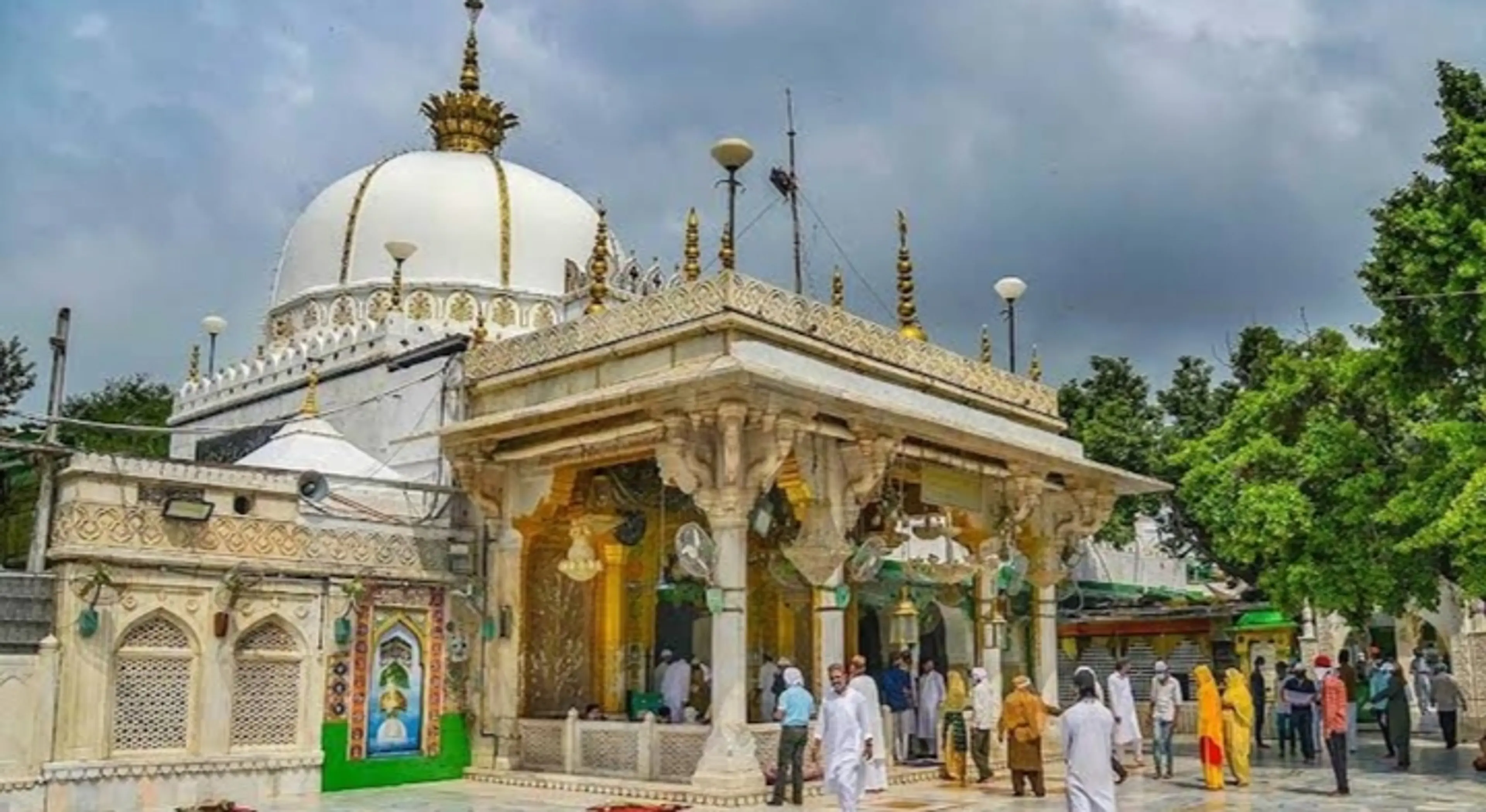
Ajmer
Known for the famous Dargah Sharif, a shrine of the Sufi Saint Khwaja Moinuddin Chishti.
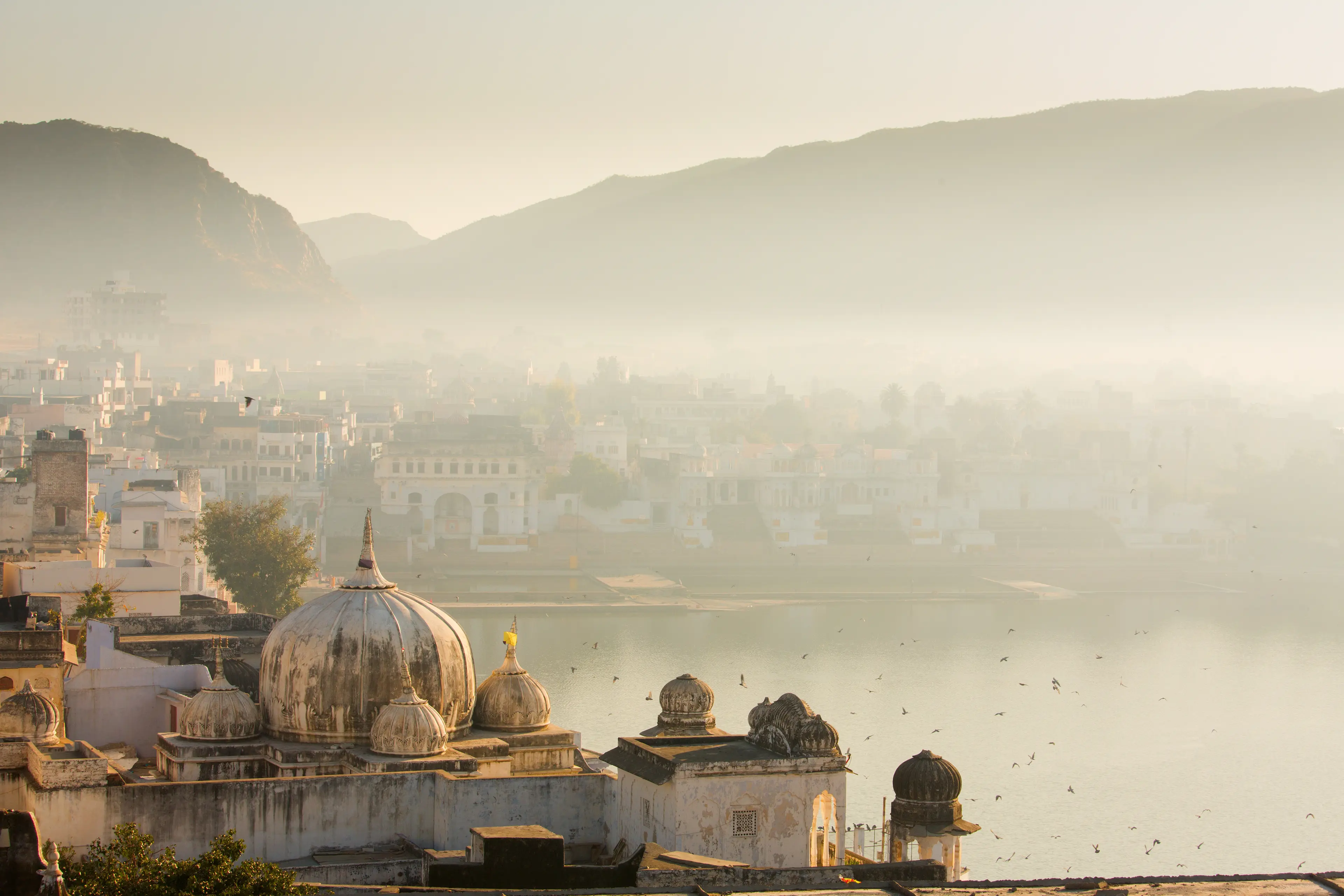
Pushkar
Famous for the Pushkar Lake, various ghats and temples spread all around the lake.
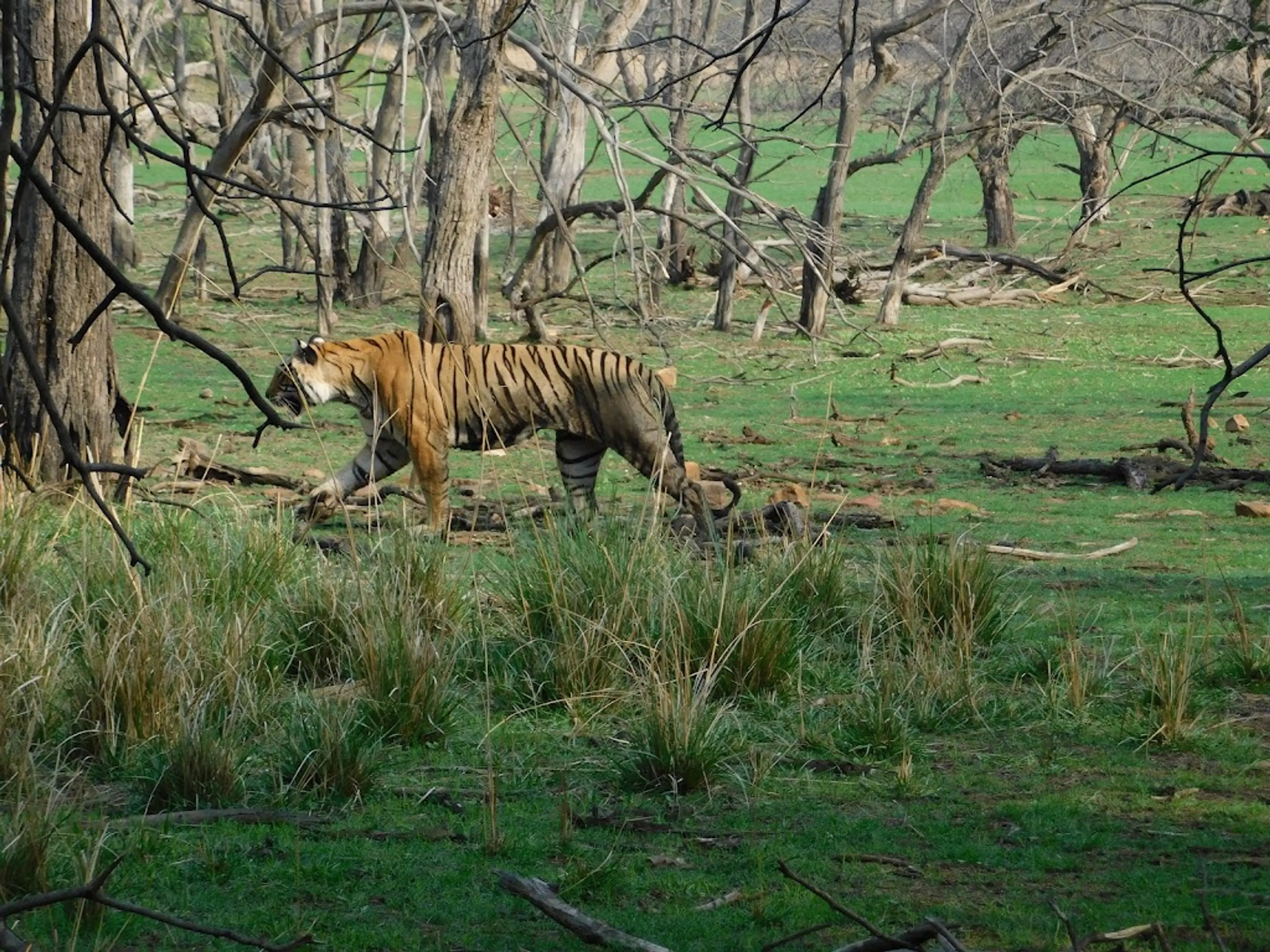
Ranthambore National Park
One of the biggest and most renowned national park in Northern India. Known for its Bengal Tigers.
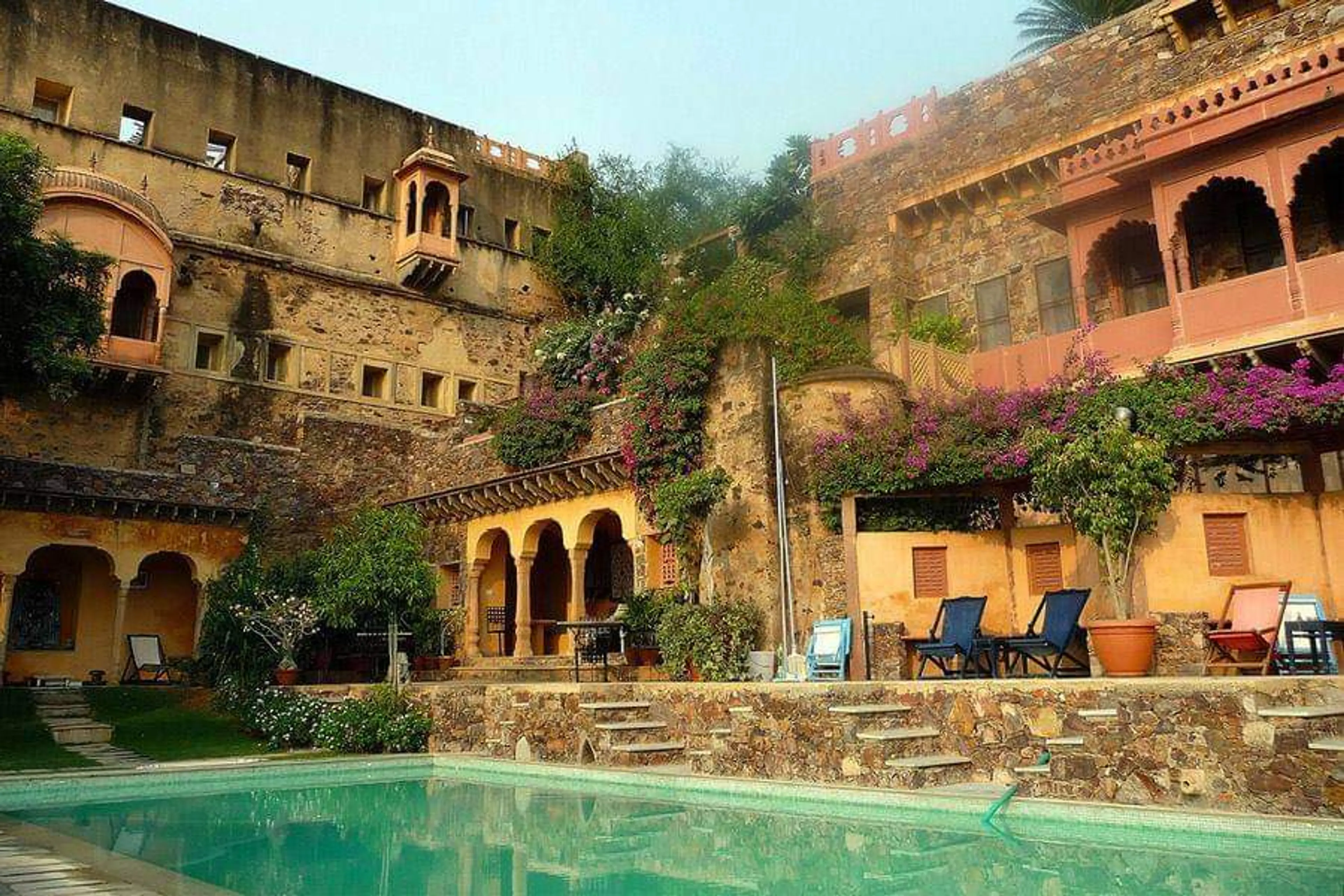
Neemrana
Known for the Neemrana Fort Palace, a 15th-century fort that has been converted into a luxurious heritage hotel.
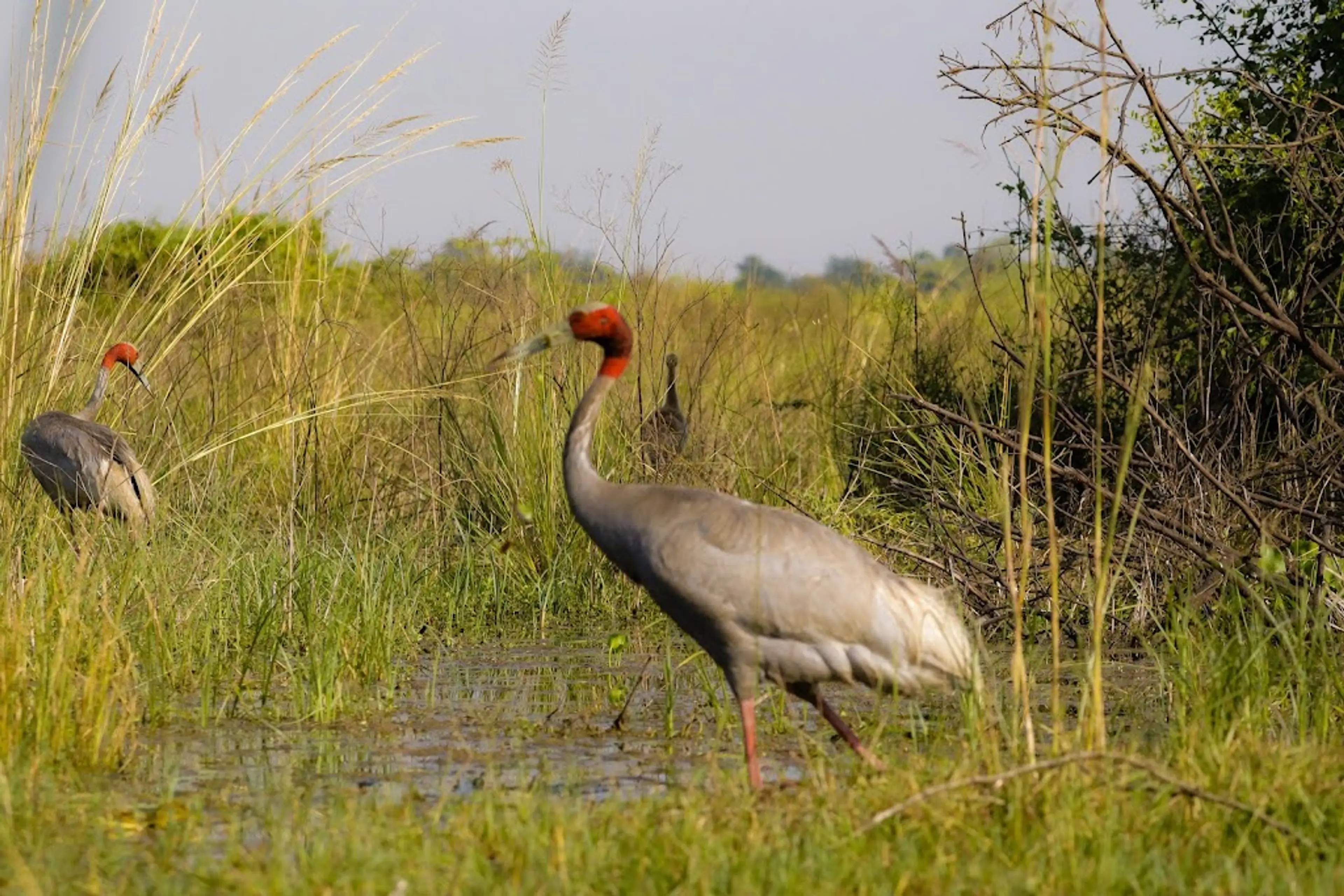
Bharatpur Bird Sanctuary
Also known as Keoladeo National Park, it is a famous avifauna sanctuary that hosts thousands of birds.
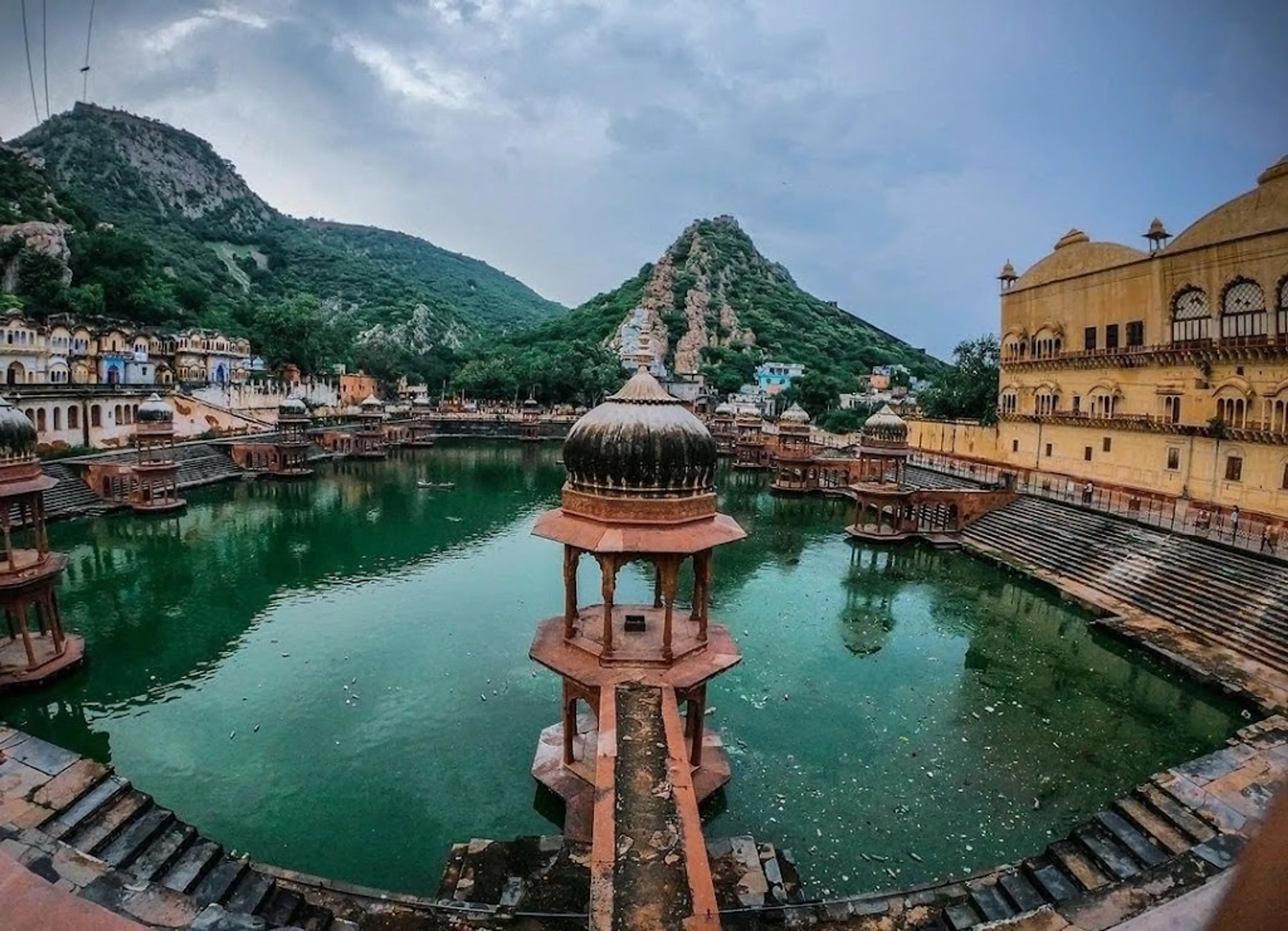
Alwar
Known for its palaces and temples, including the Bhangarh Fort, the most haunted place in India.
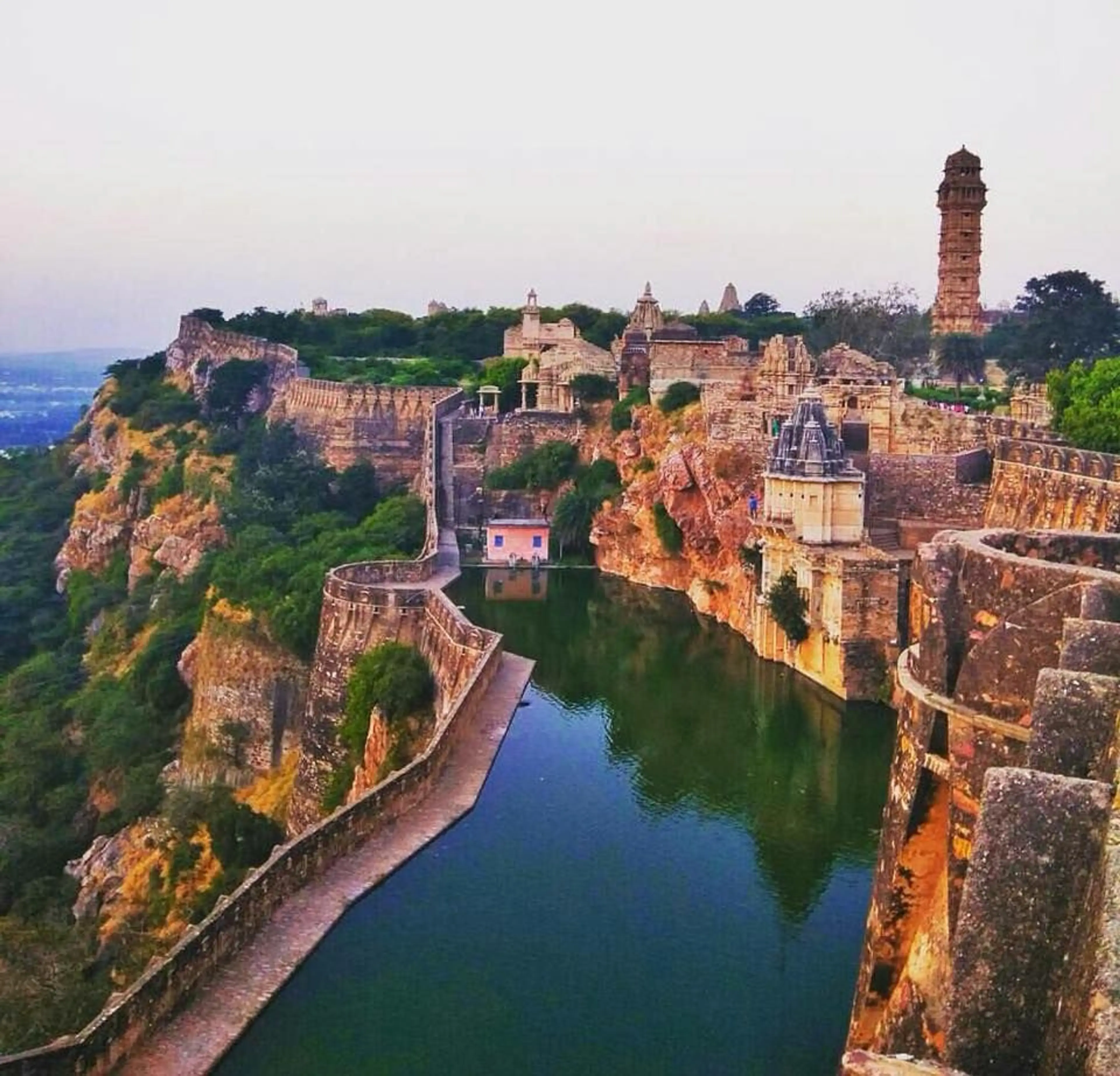
Chittorgarh
Famous for the Chittorgarh Fort, the largest fort in India and the grandest in the state of Rajasthan.
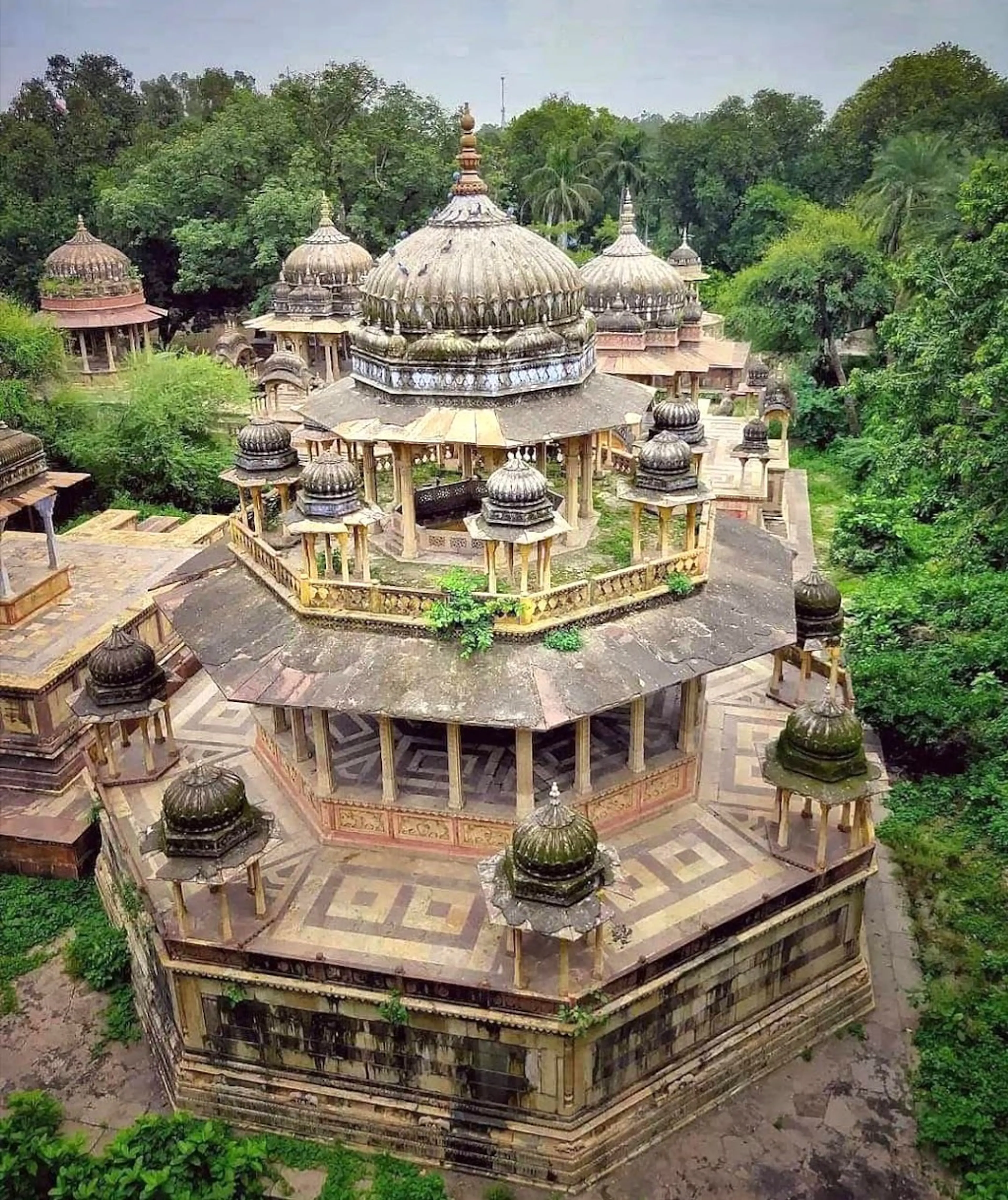
Kota
Known for its gardens, palaces, and Chambal river safari.

Udaipur
Known as the 'City of Lakes', famous for its beautiful lakes and palaces.
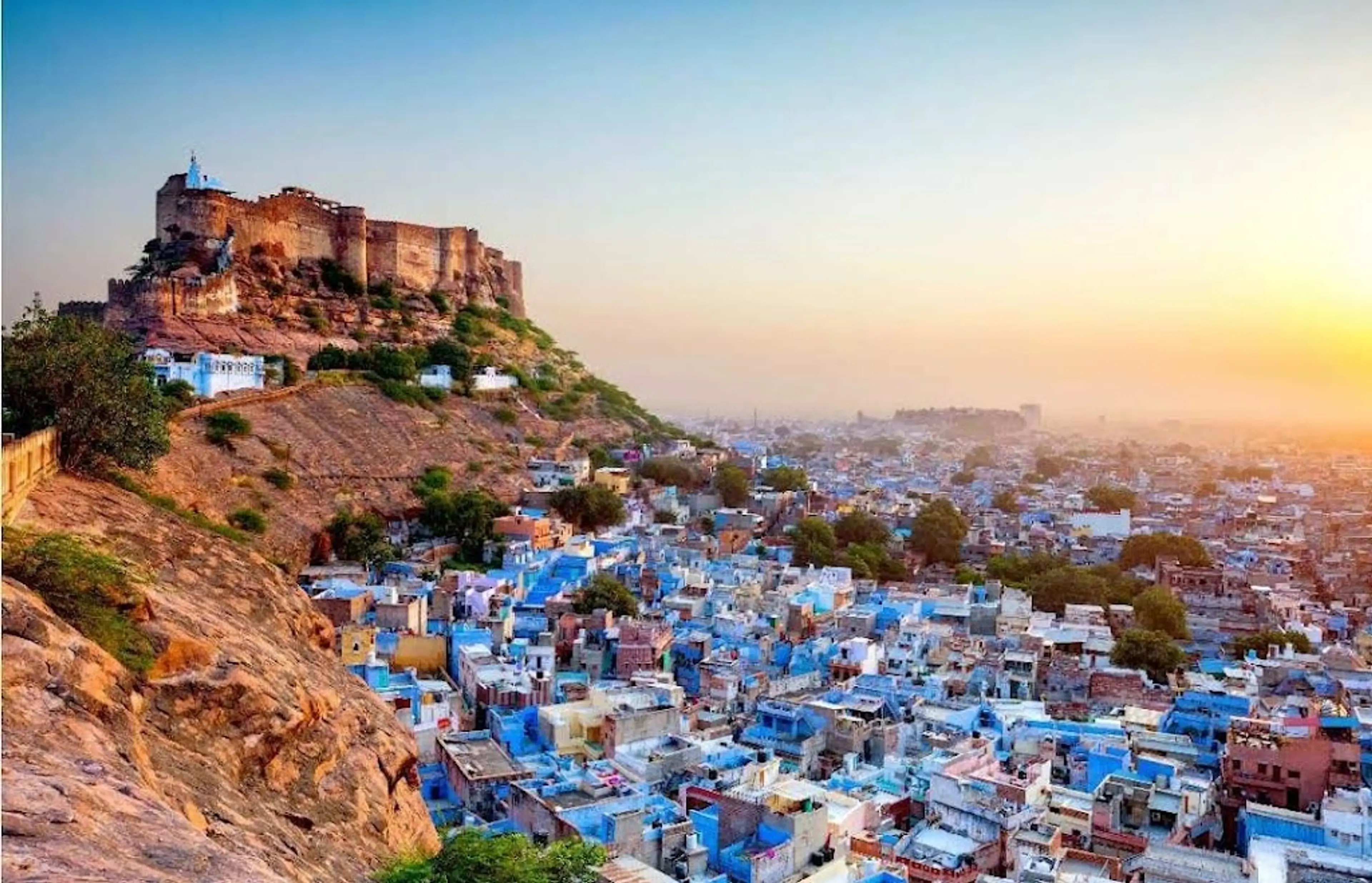
Jodhpur
Known as the 'Blue City', famous for the Mehrangarh Fort and Umaid Bhawan Palace.
